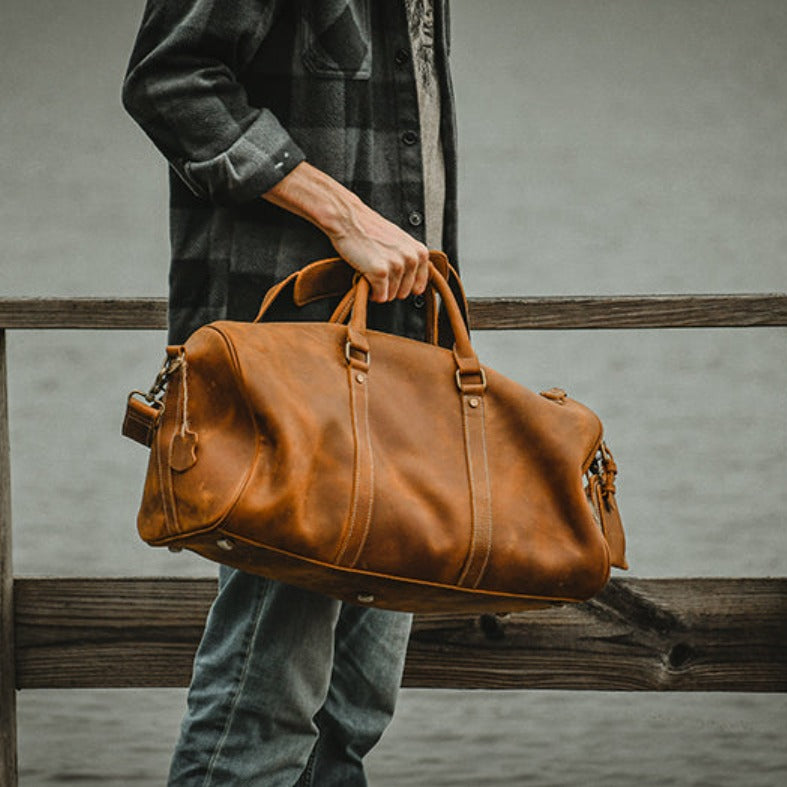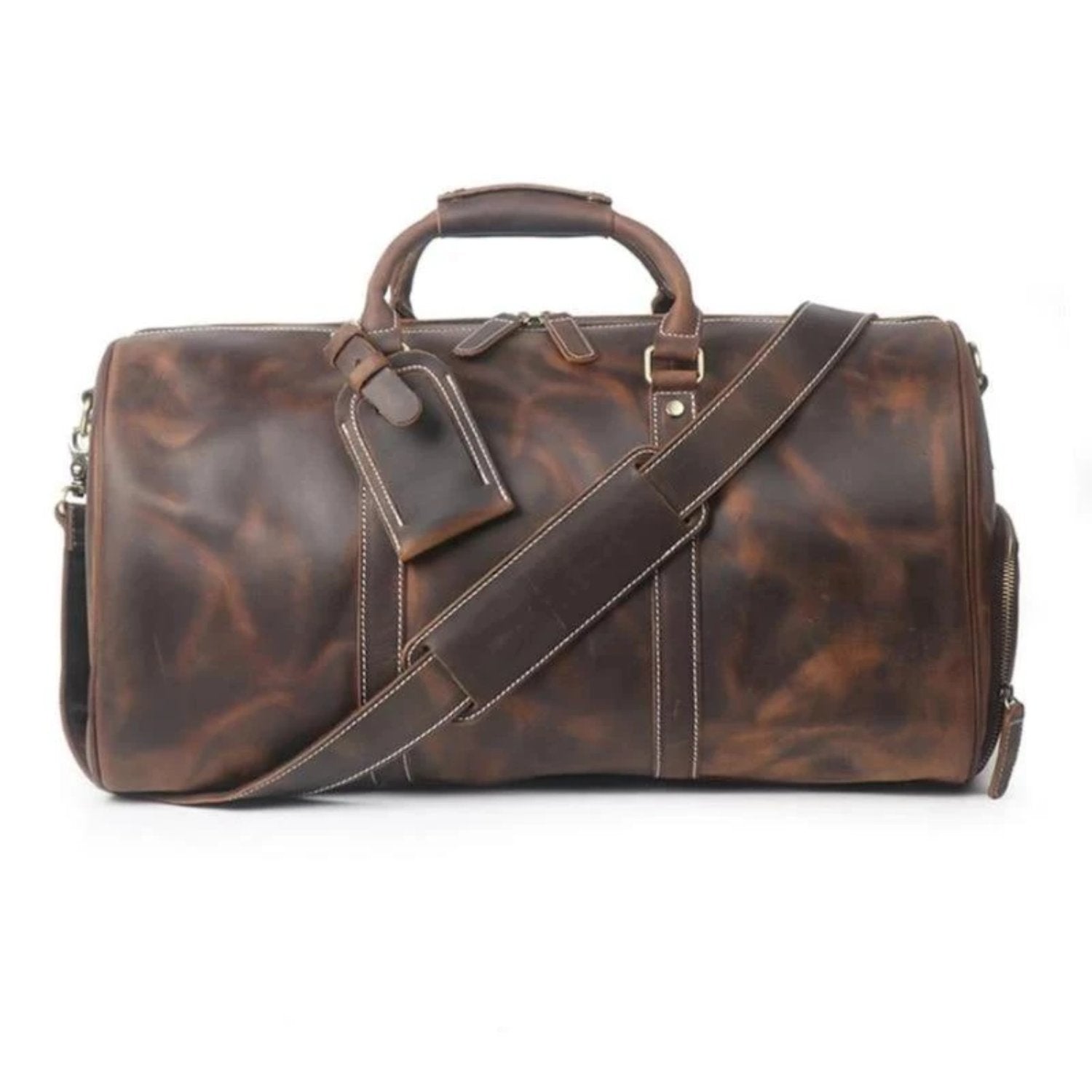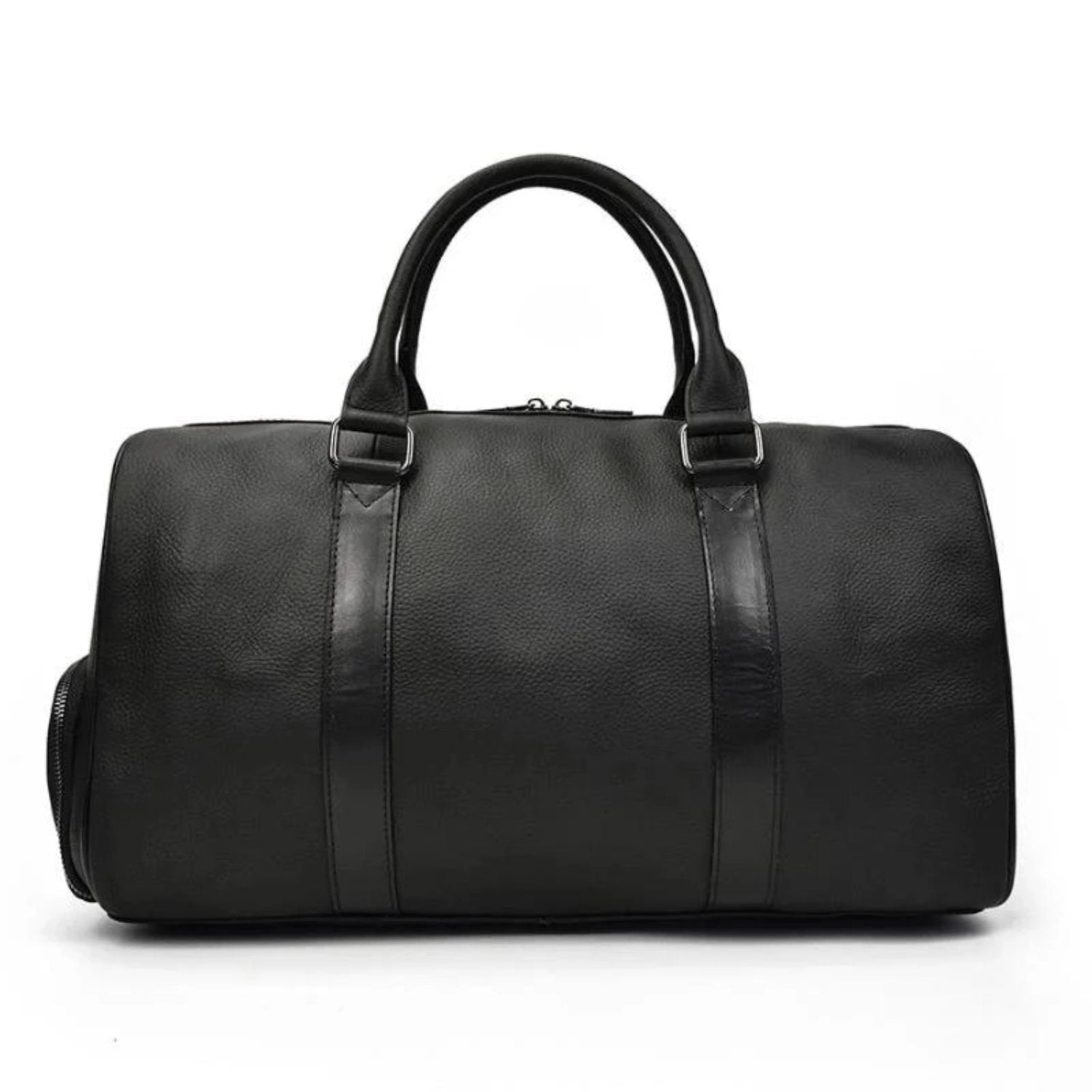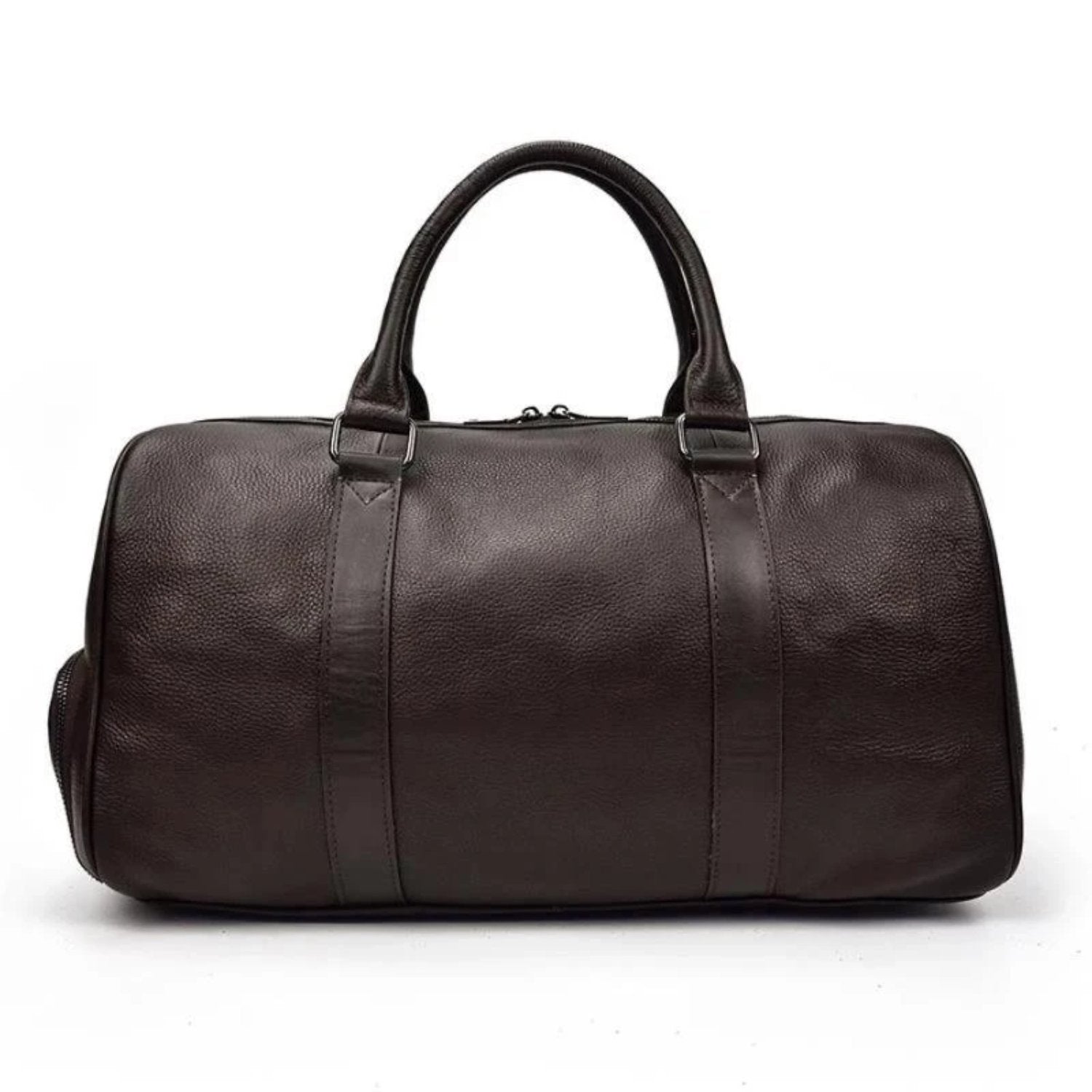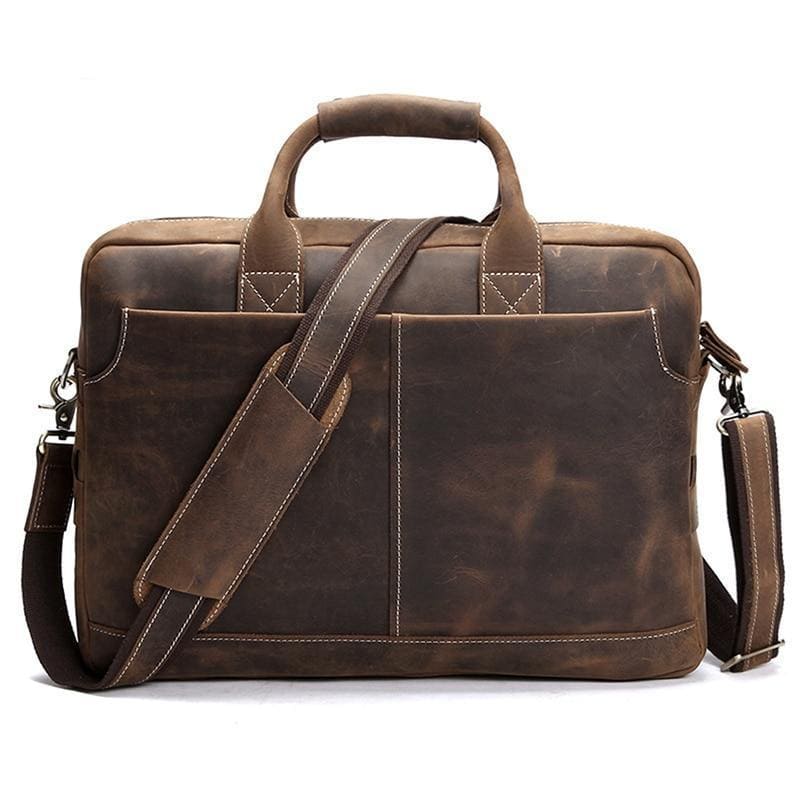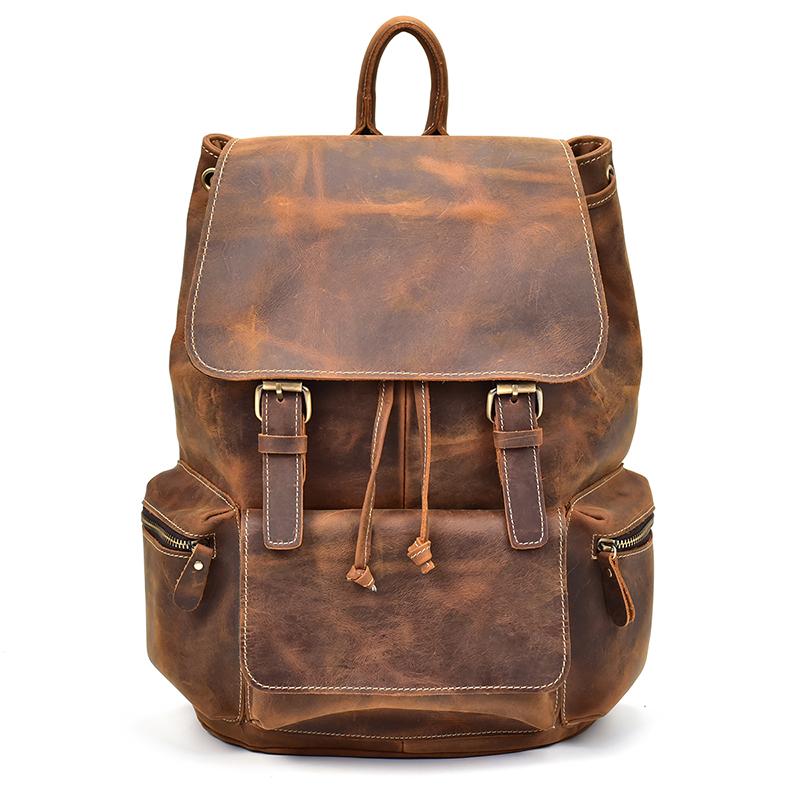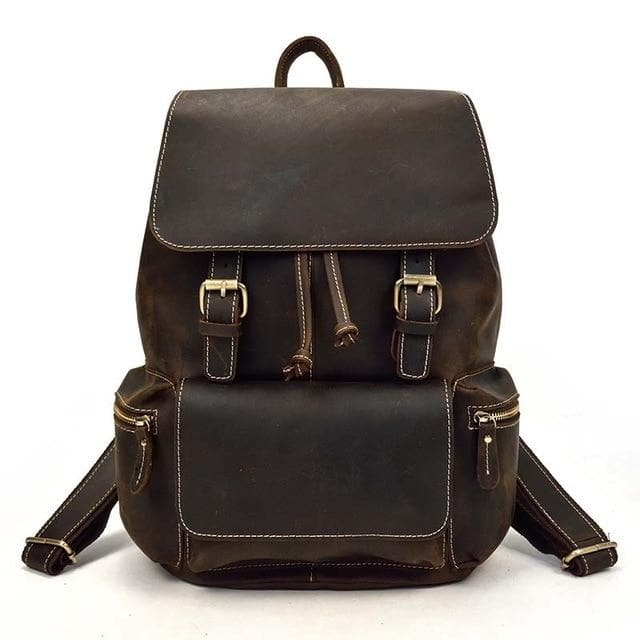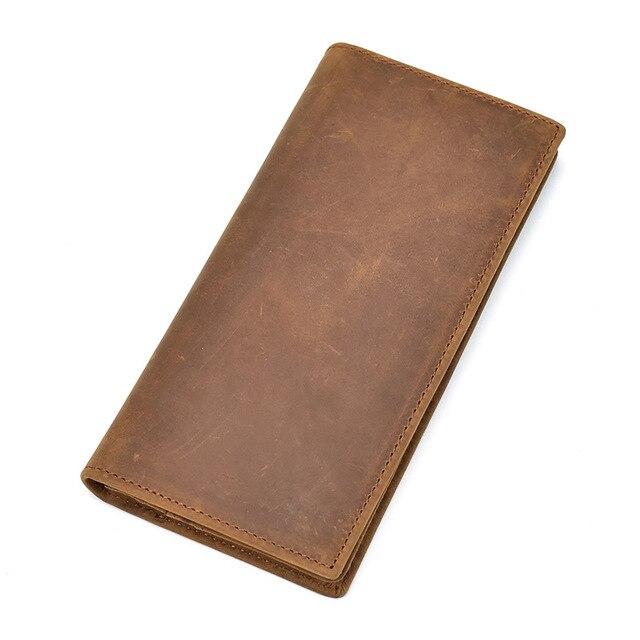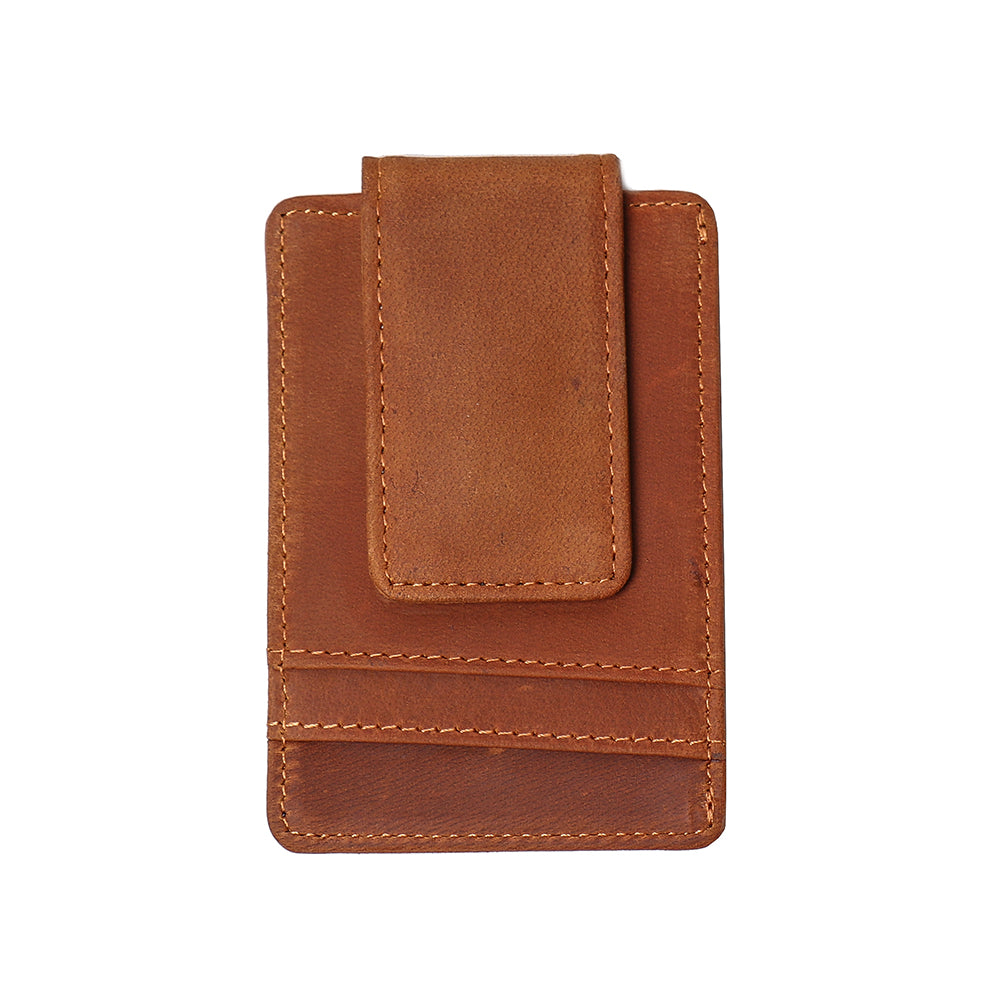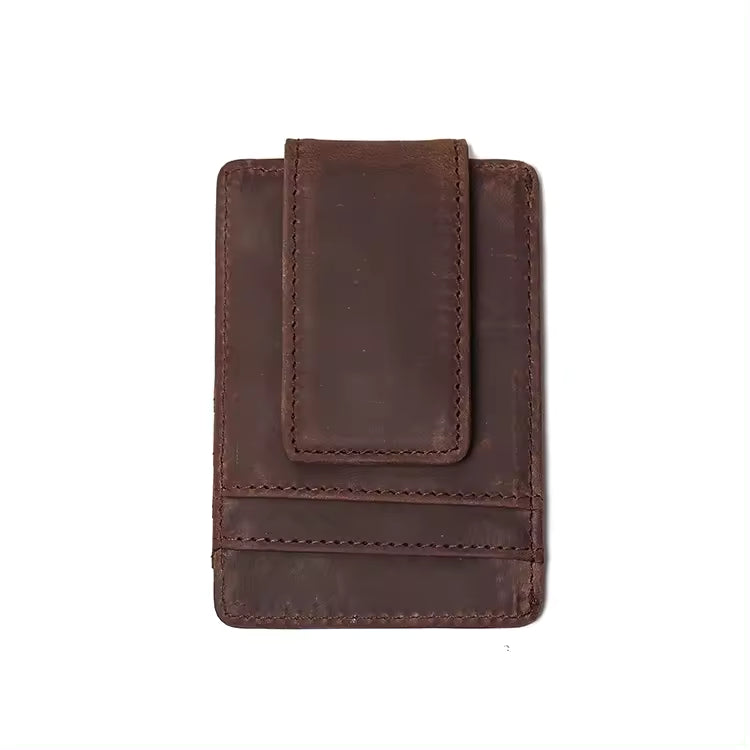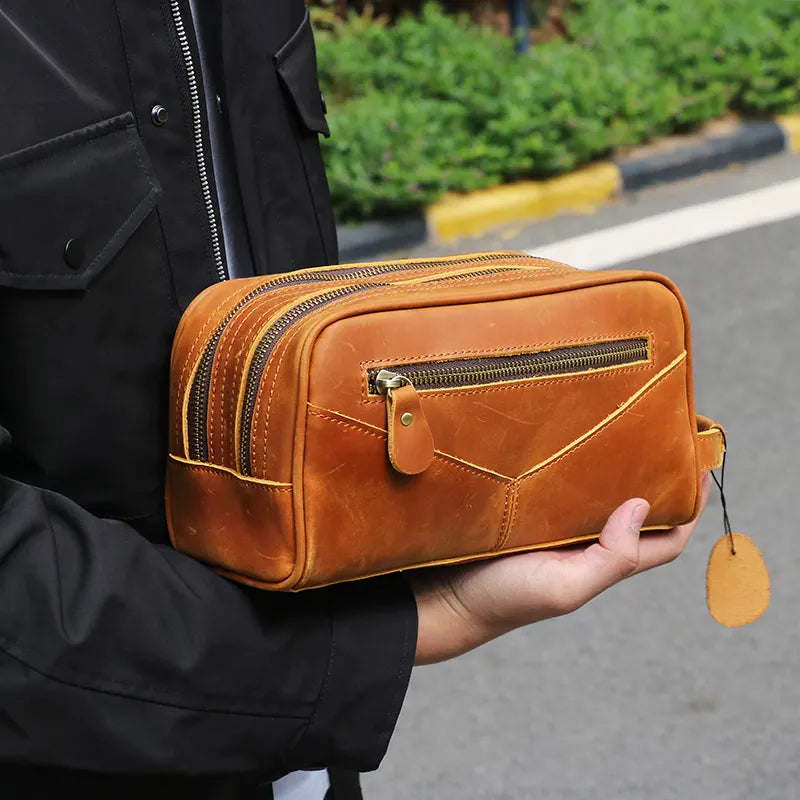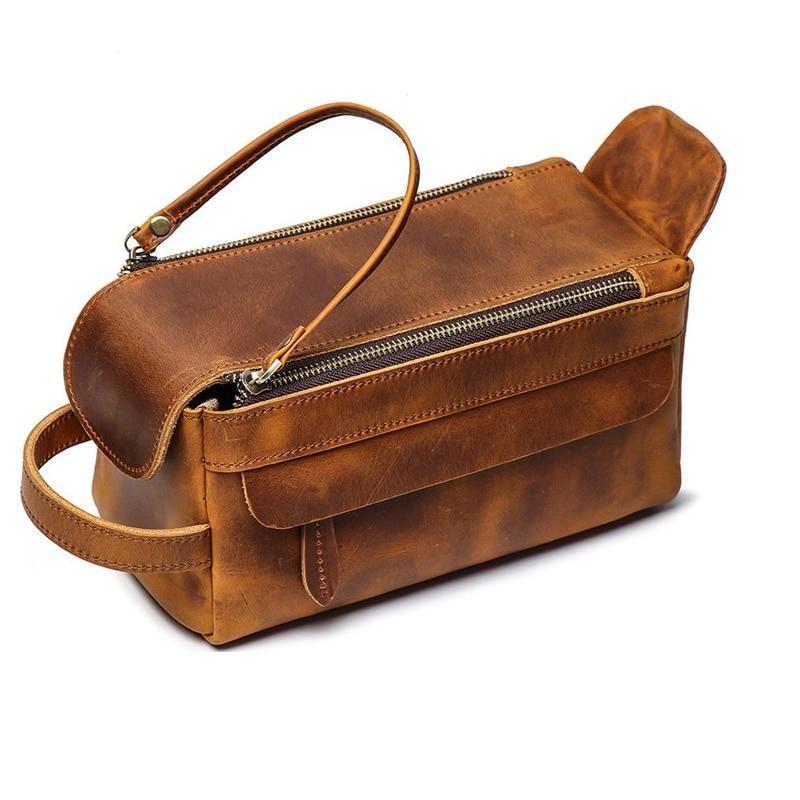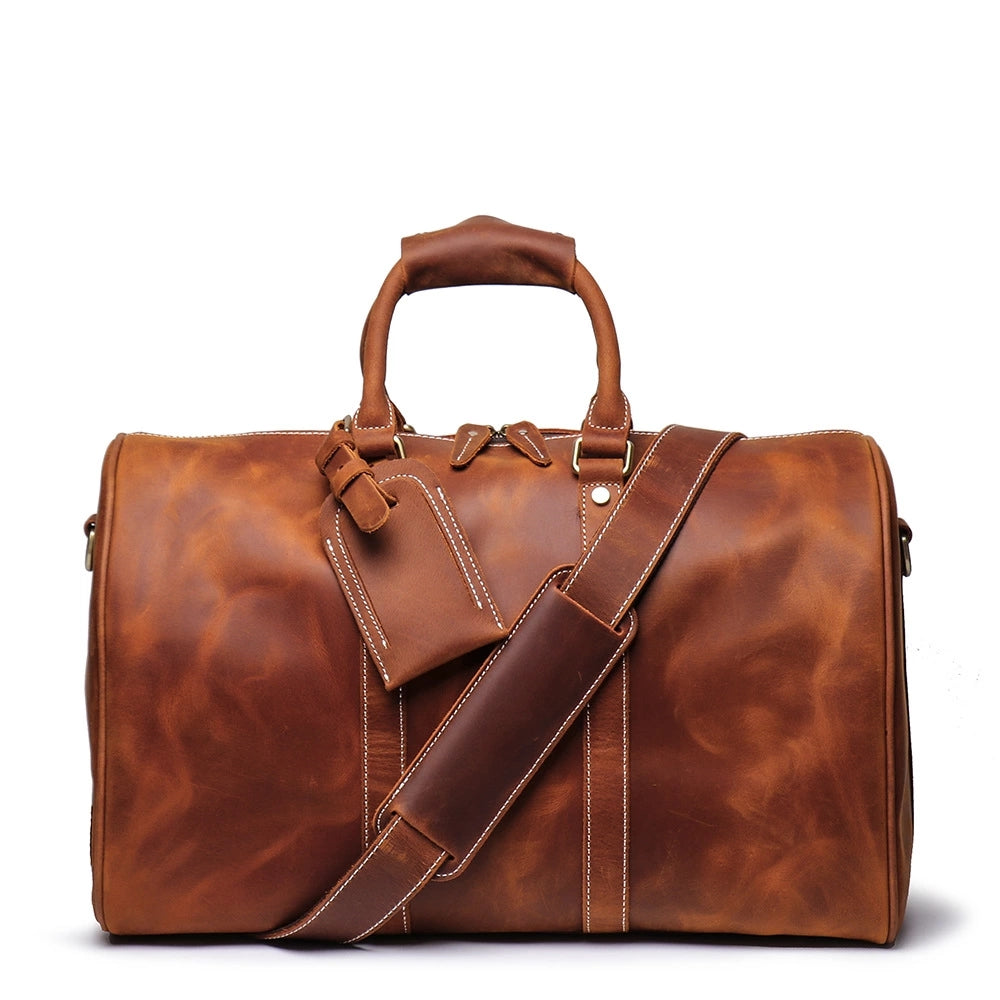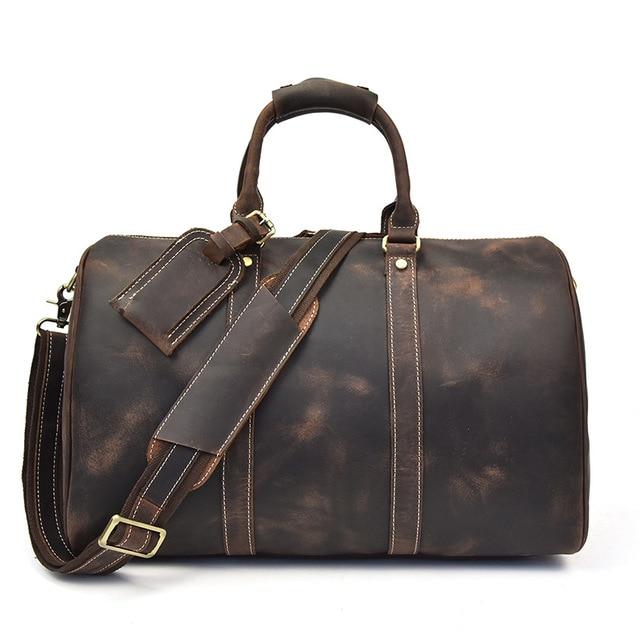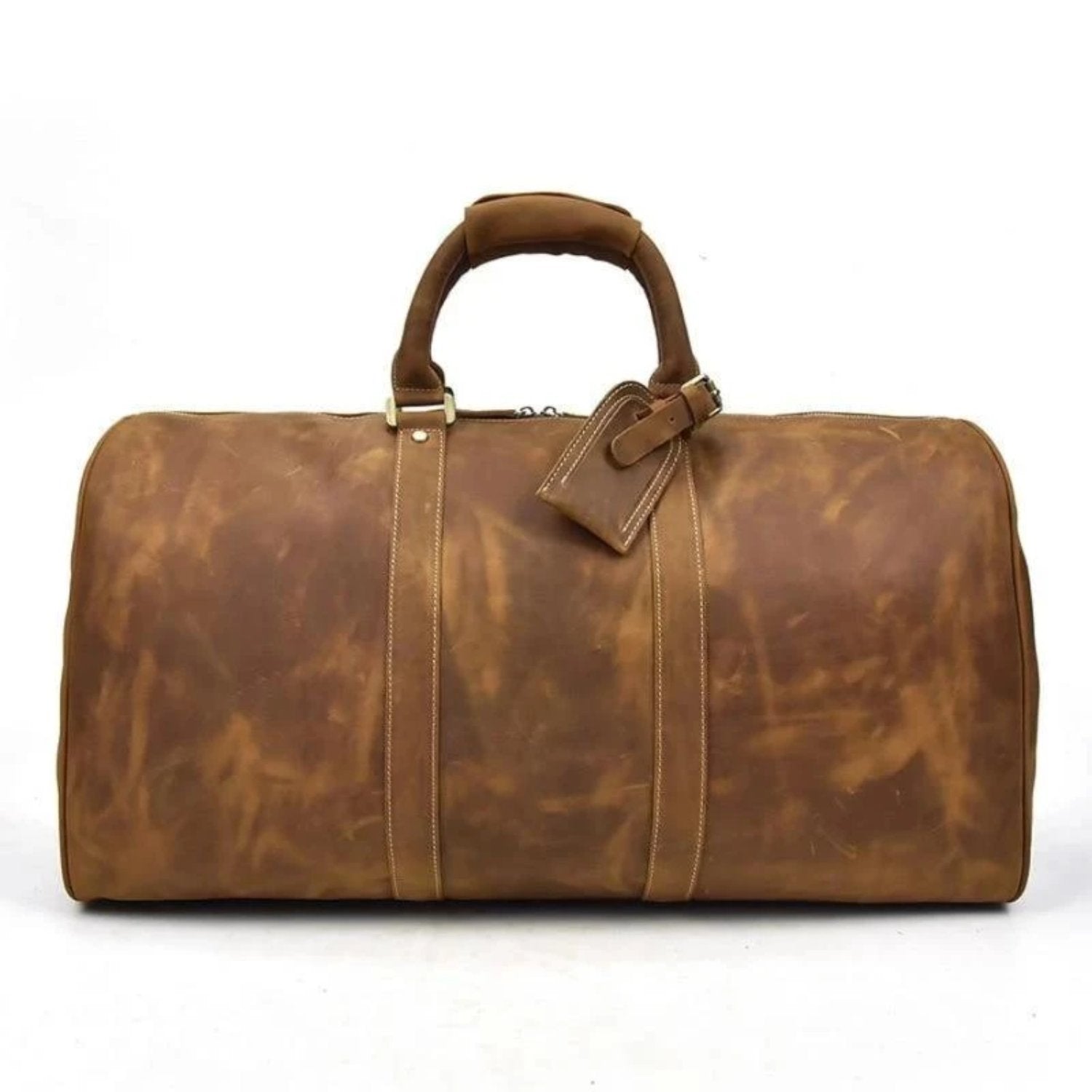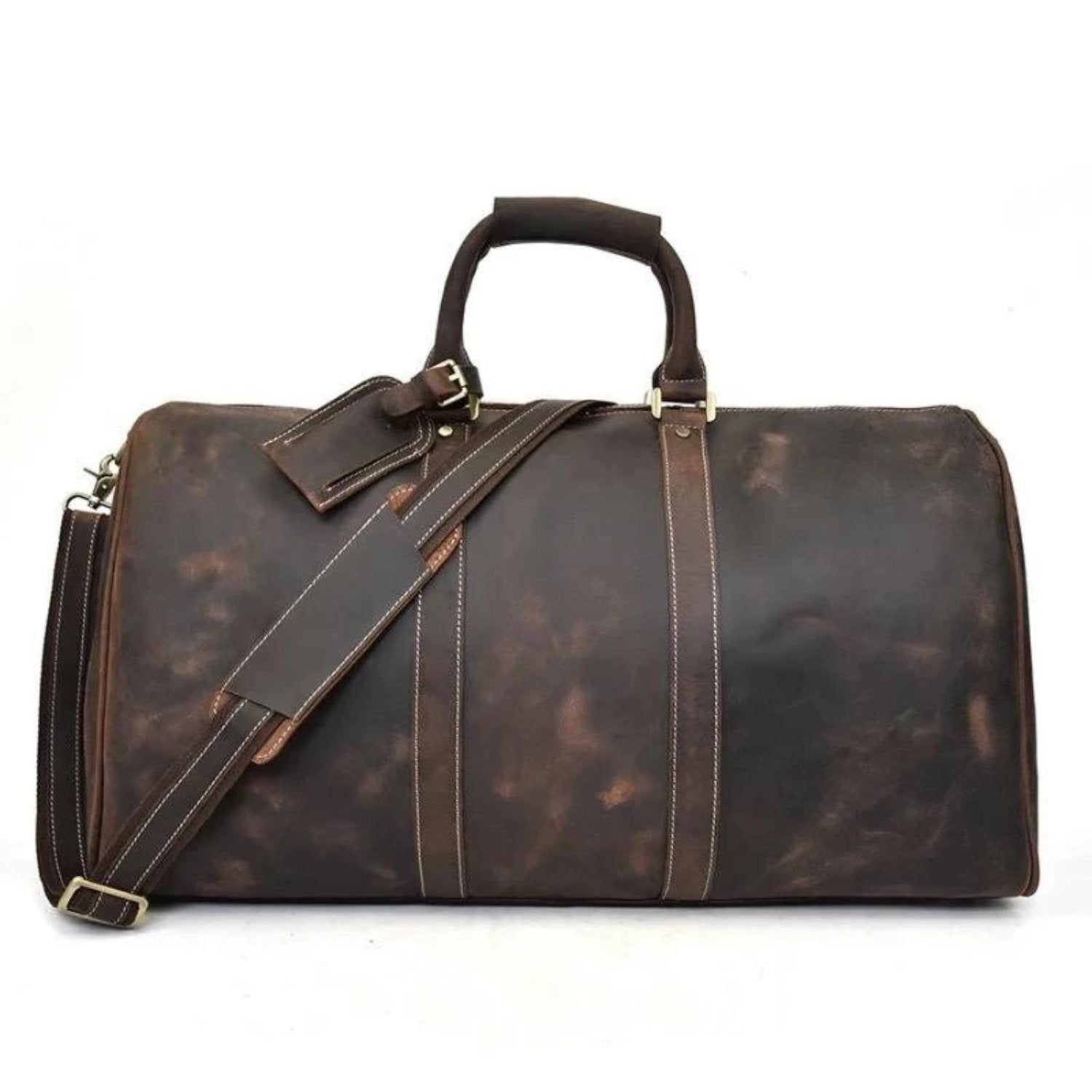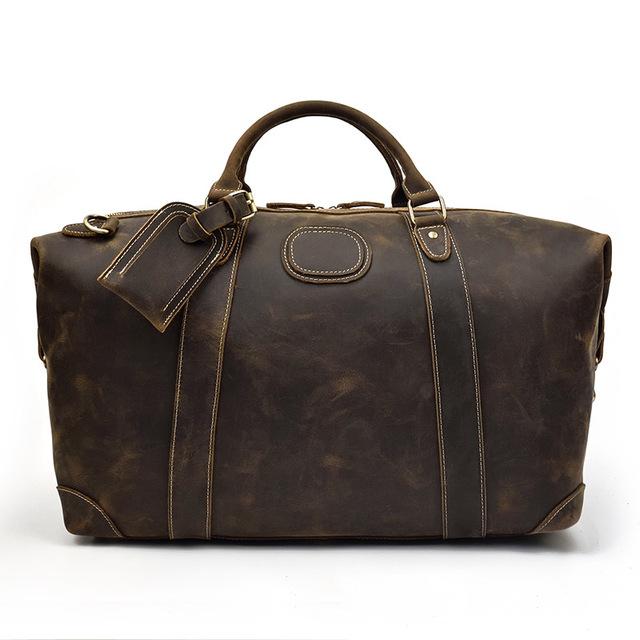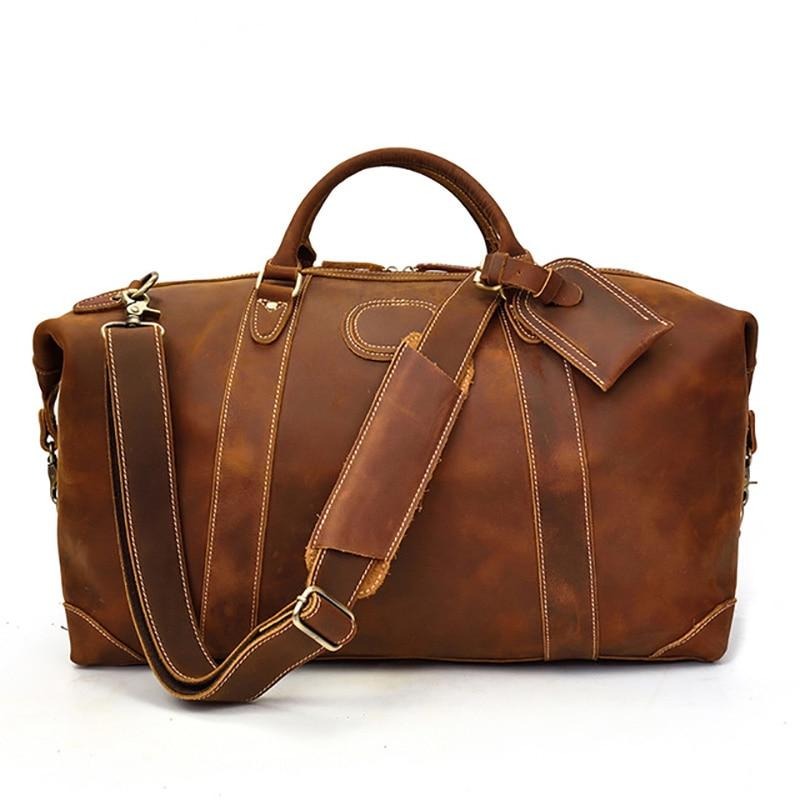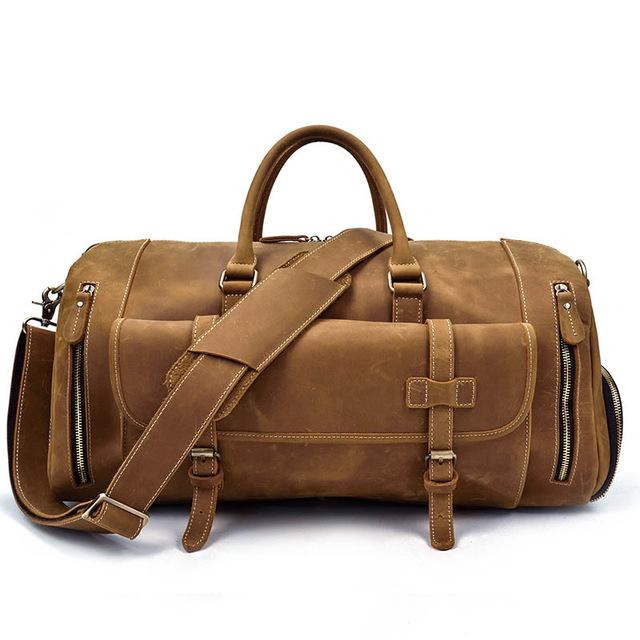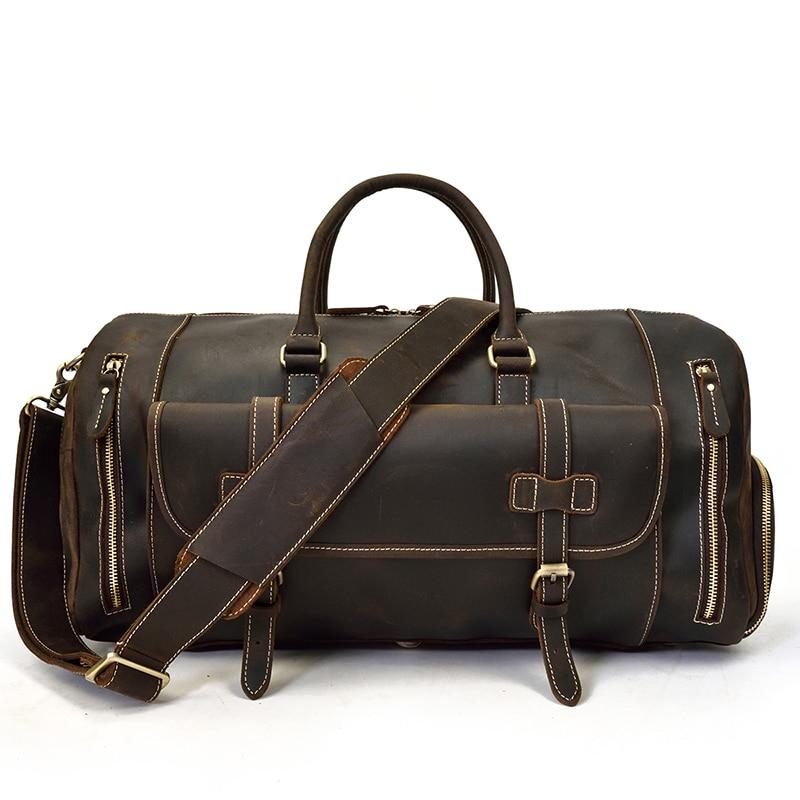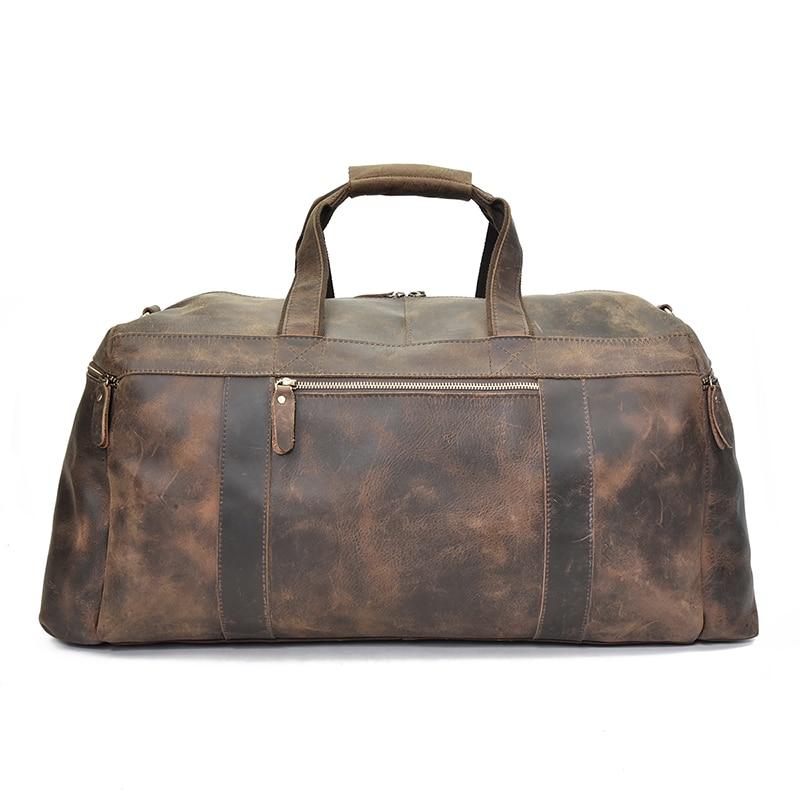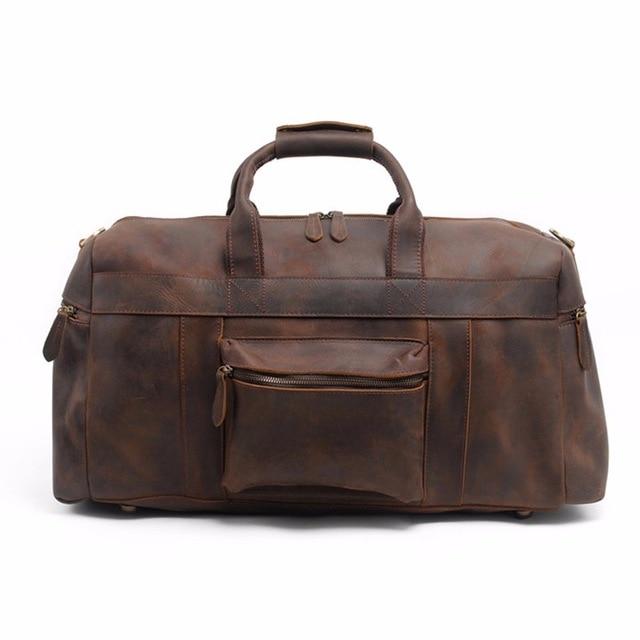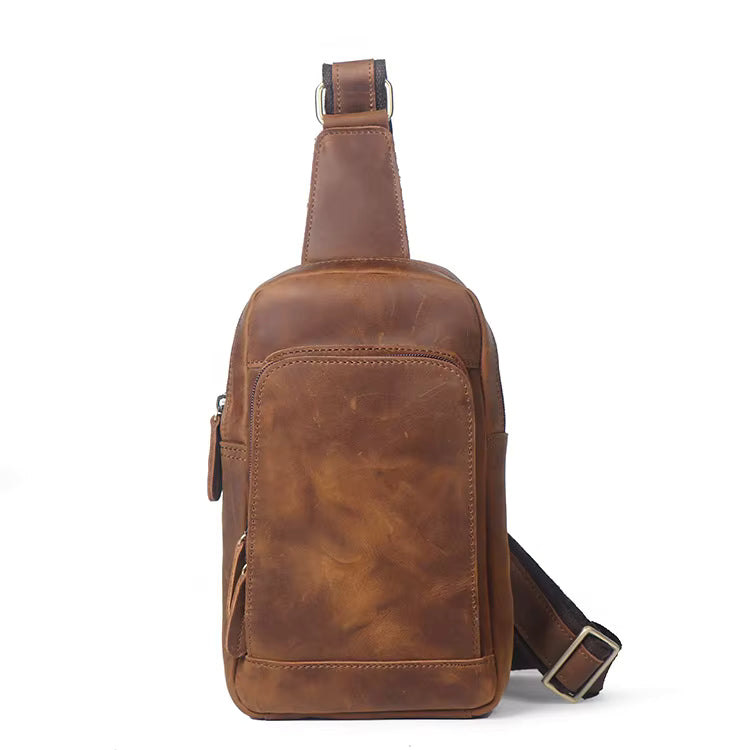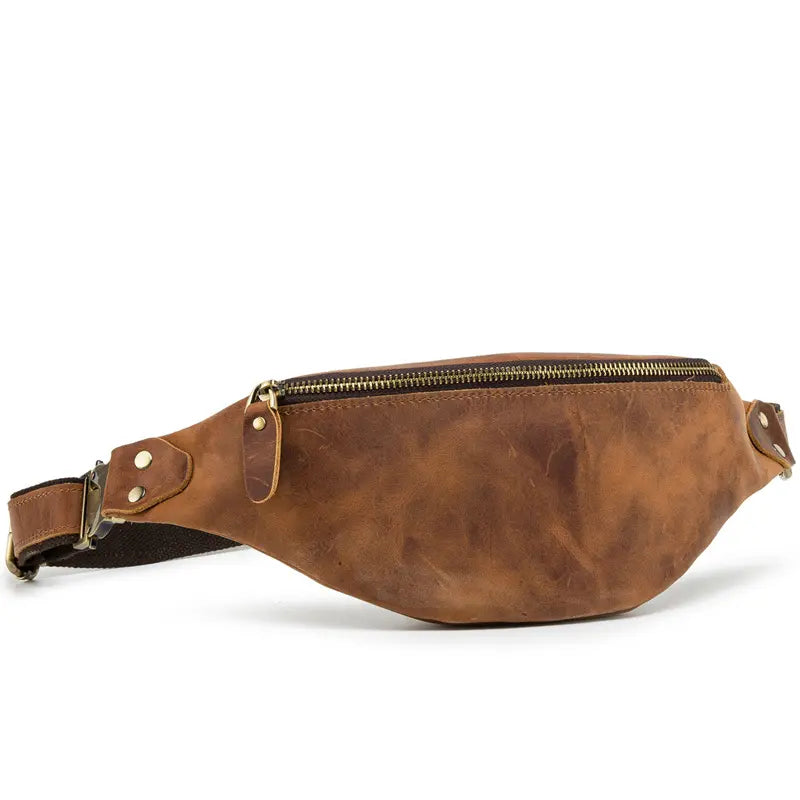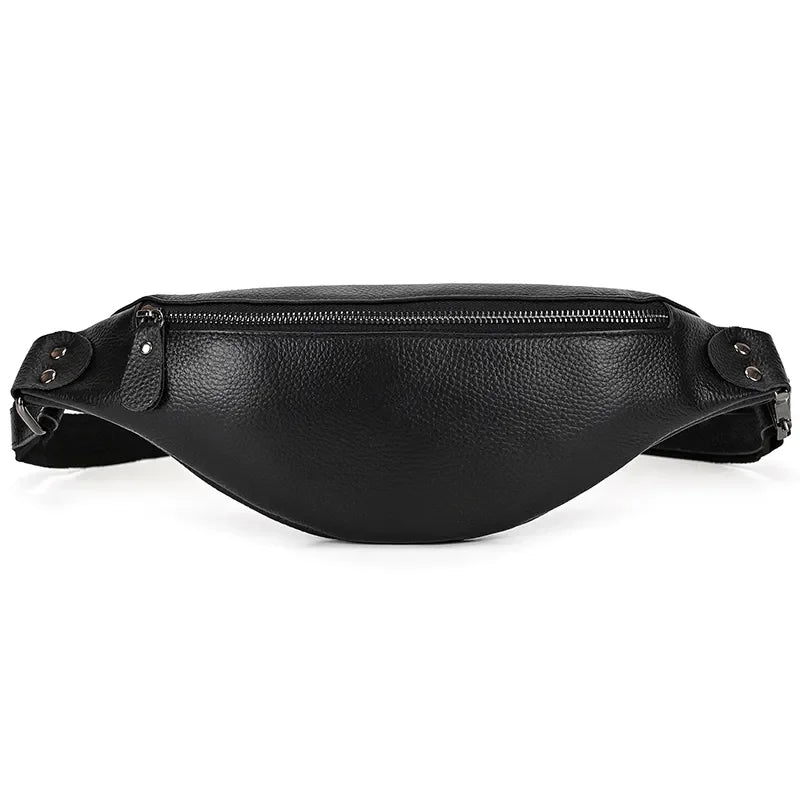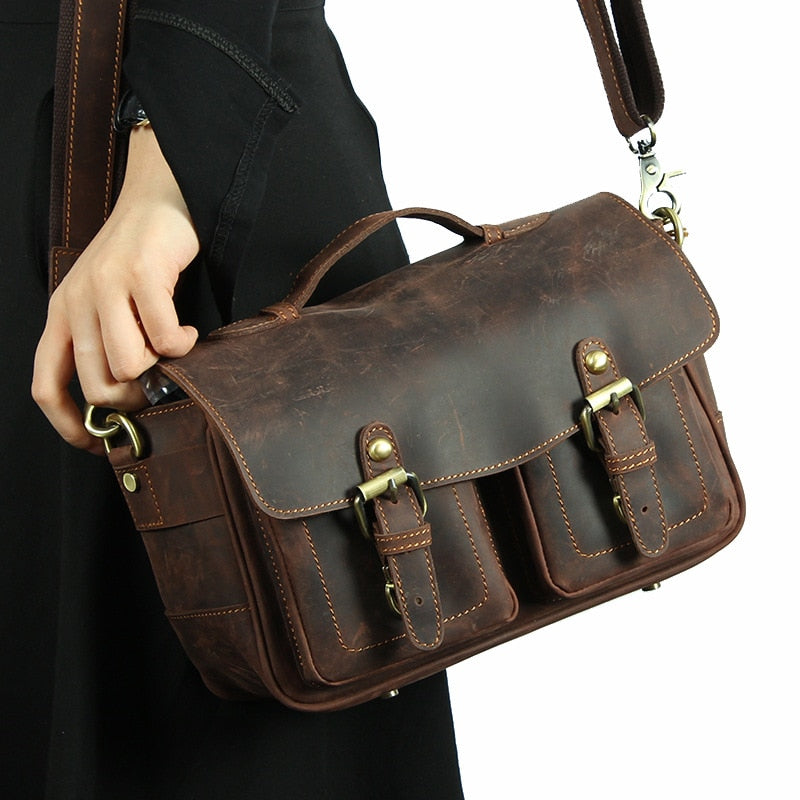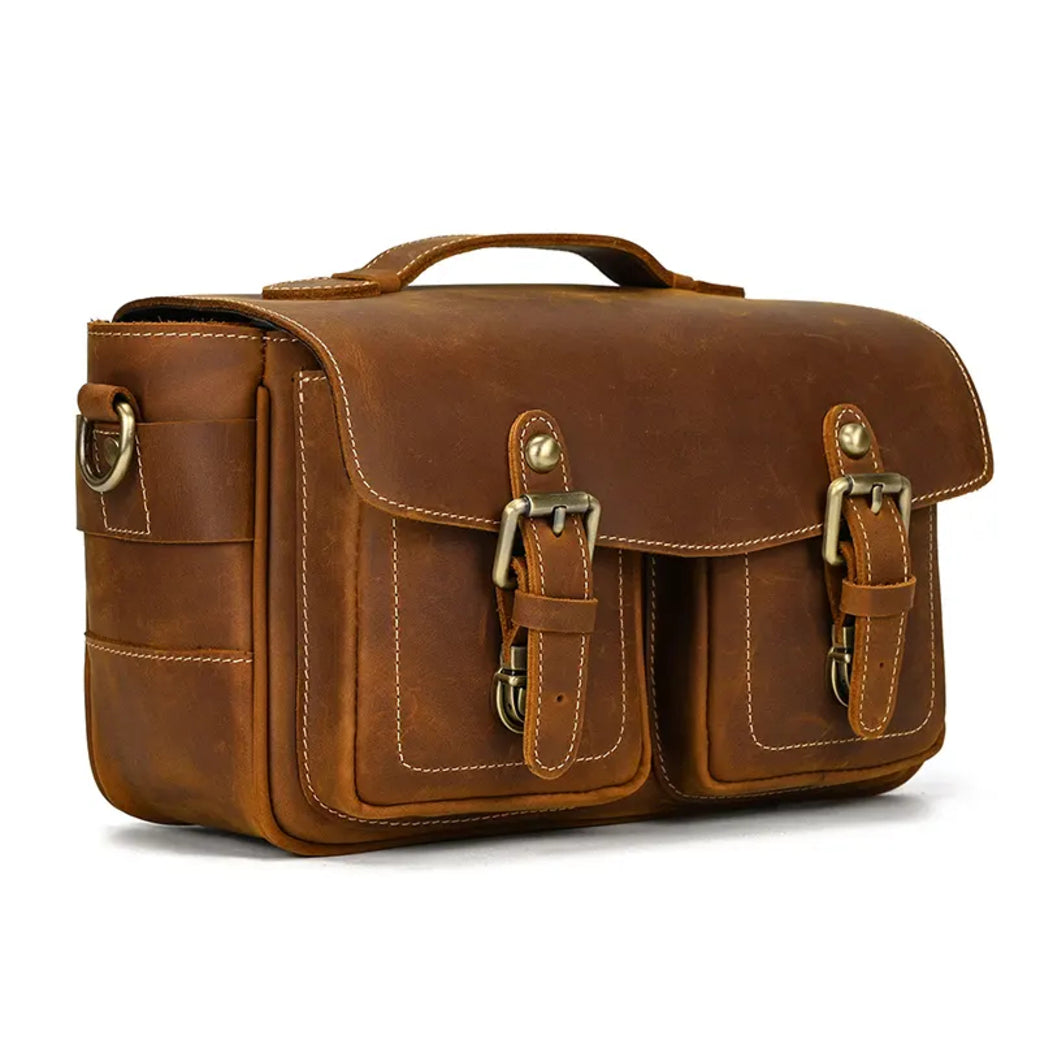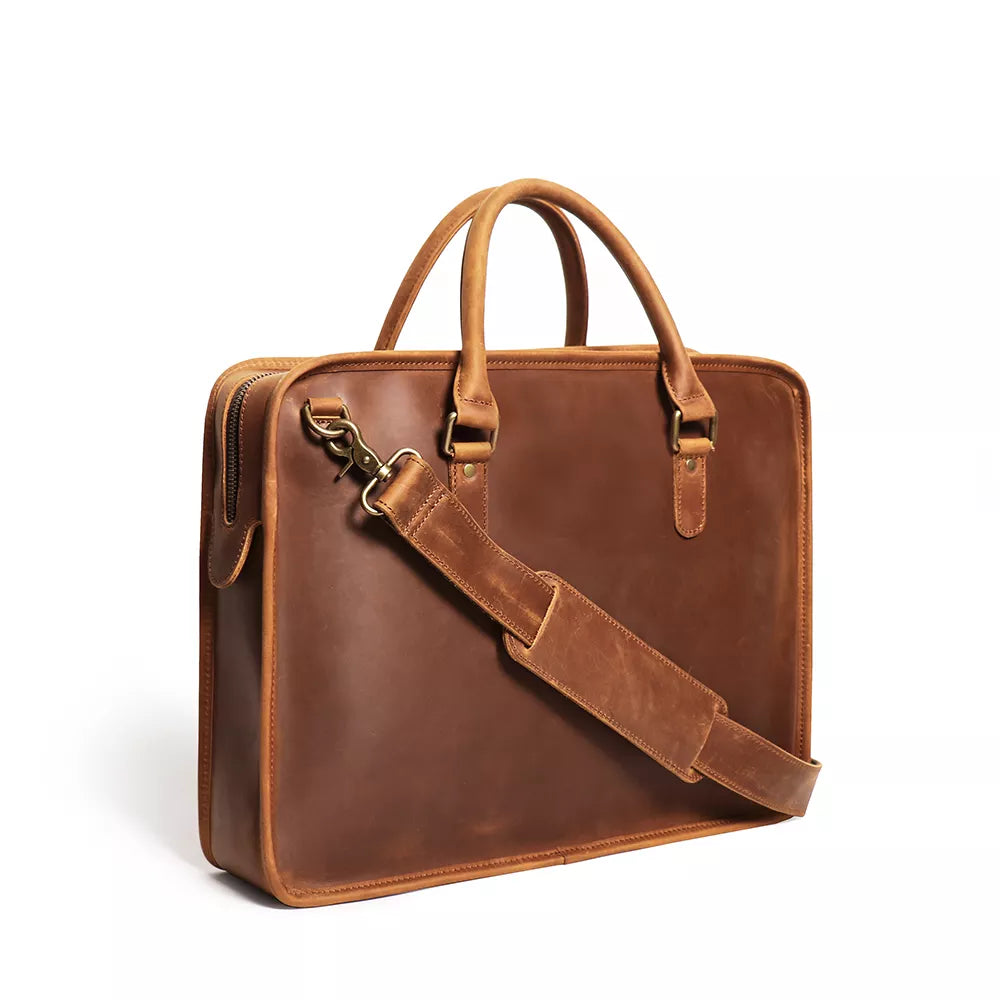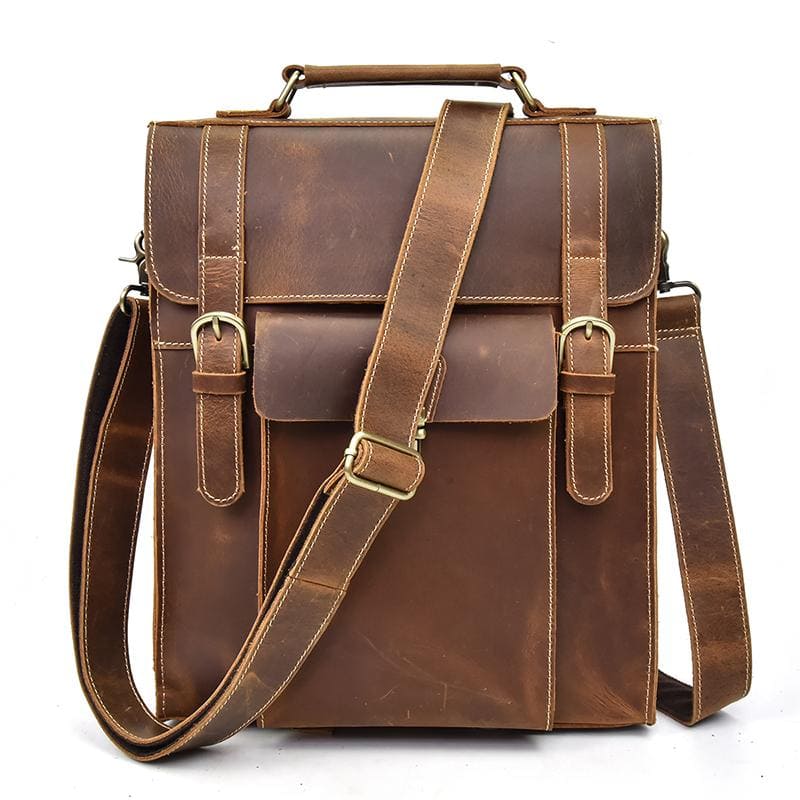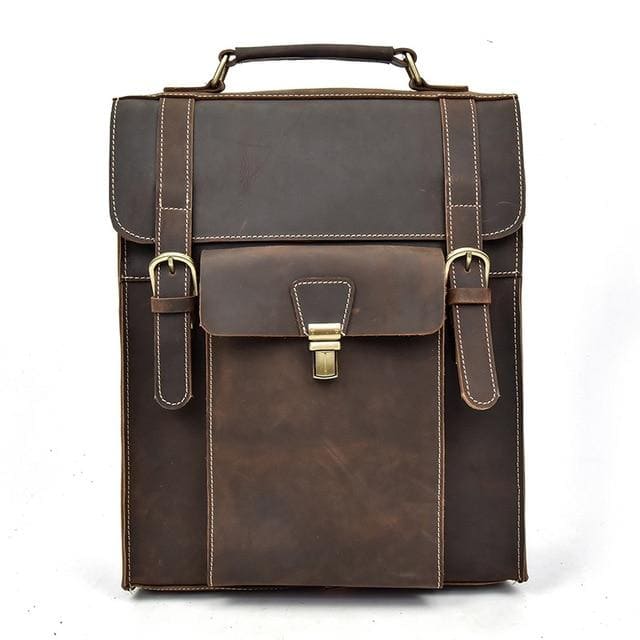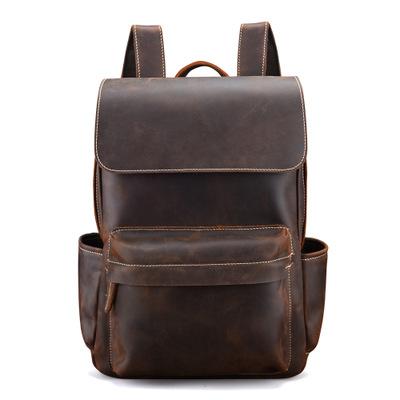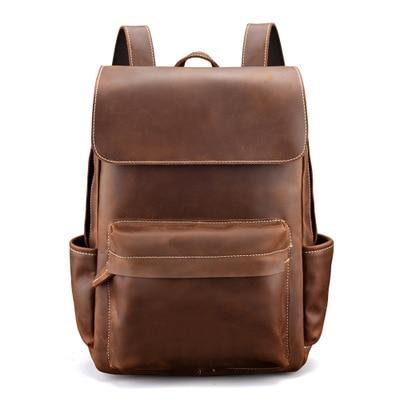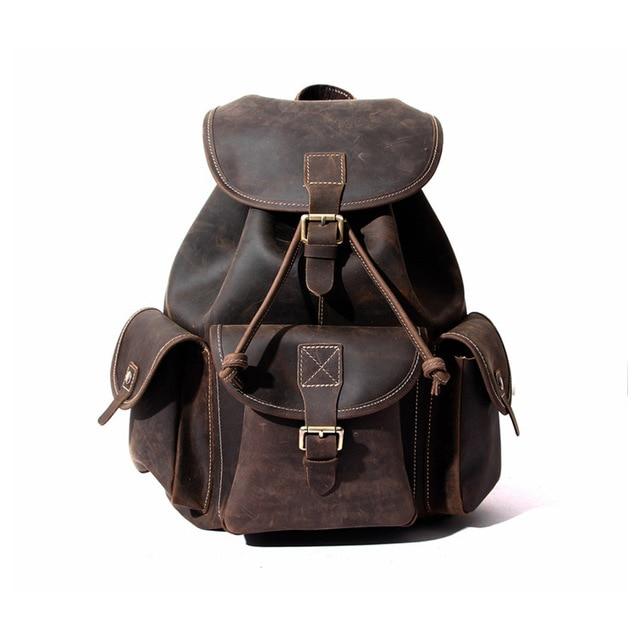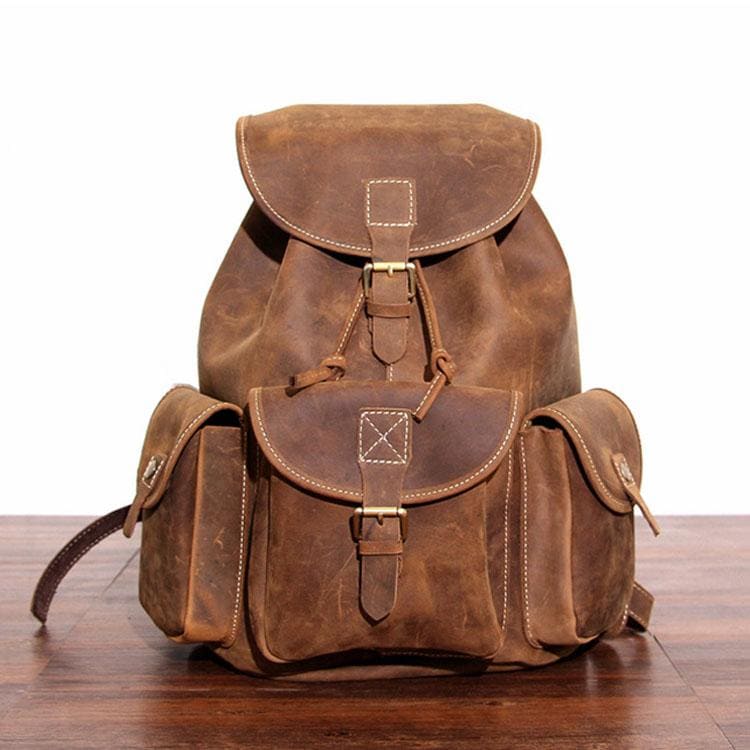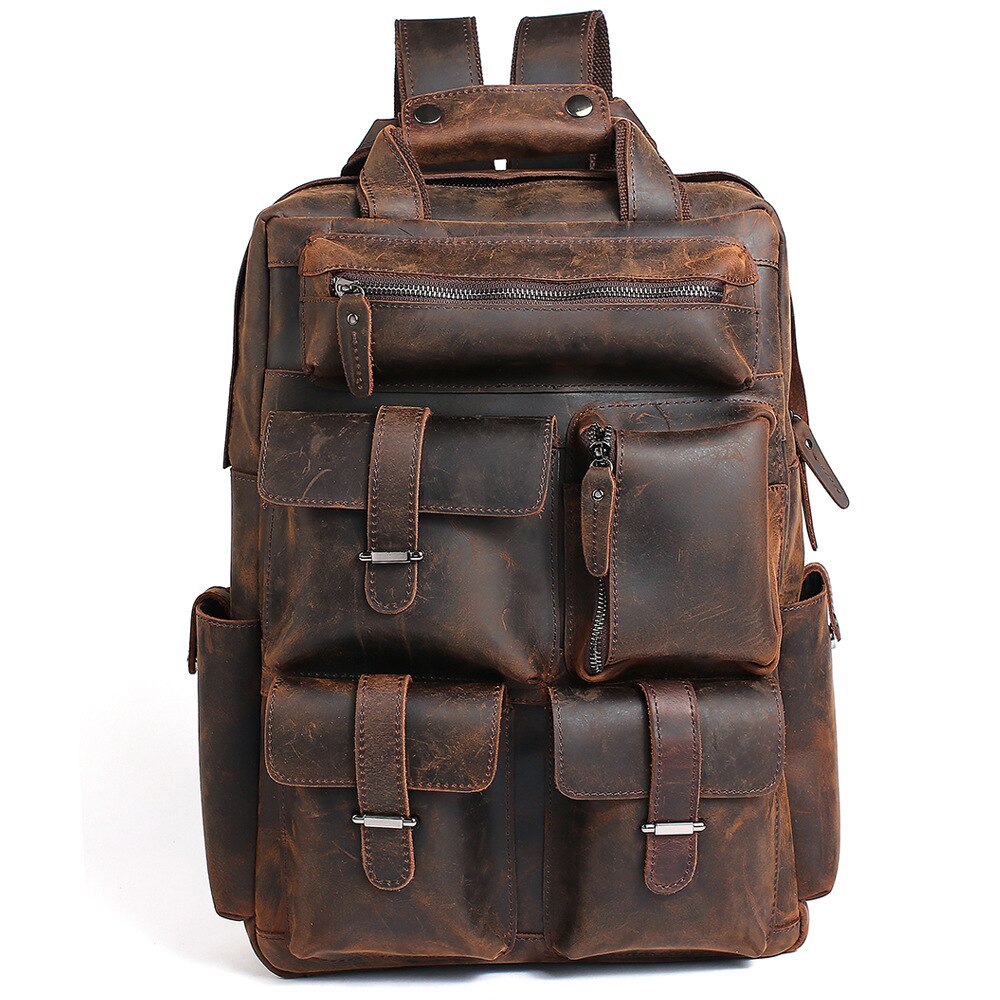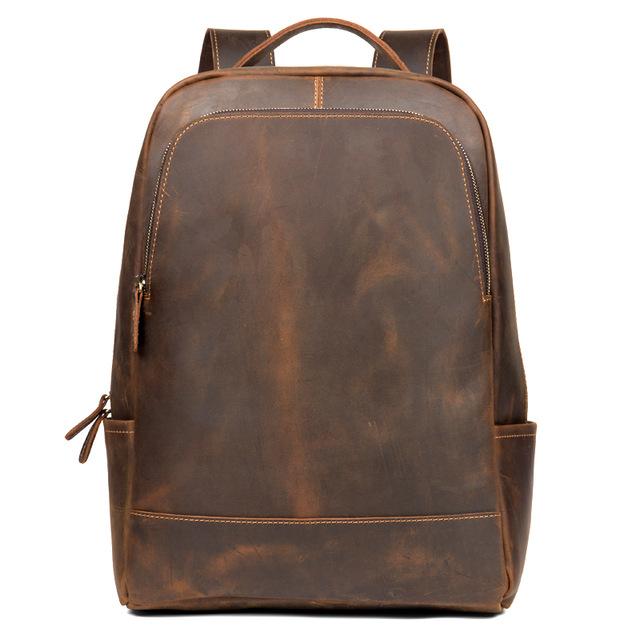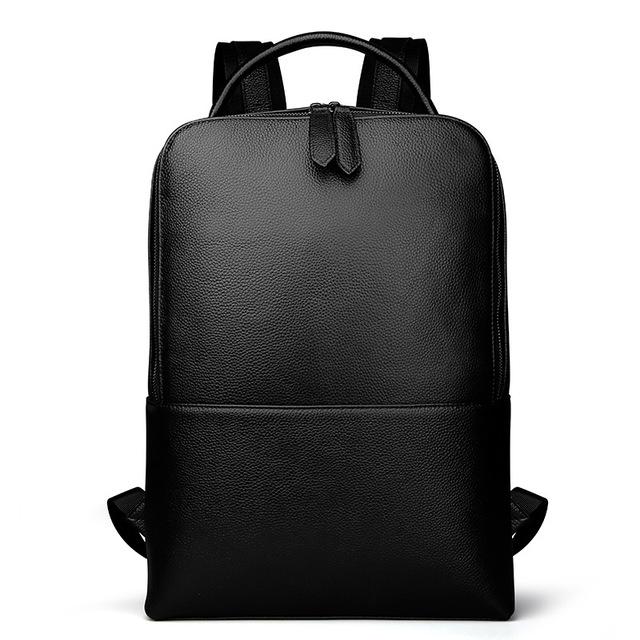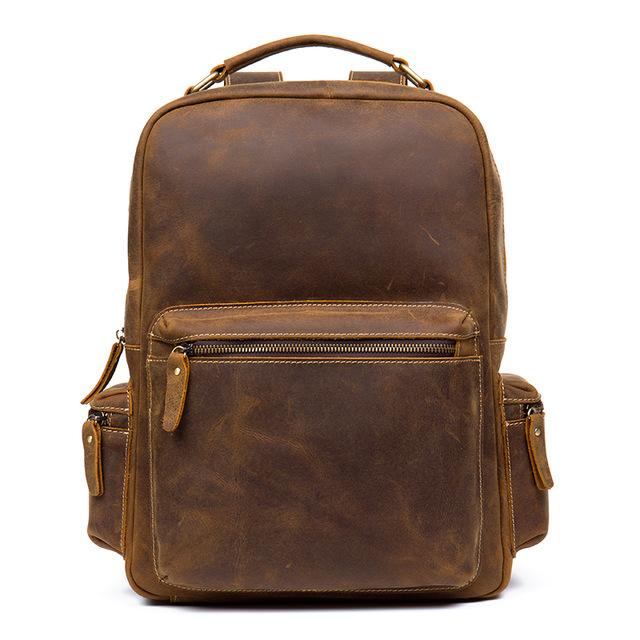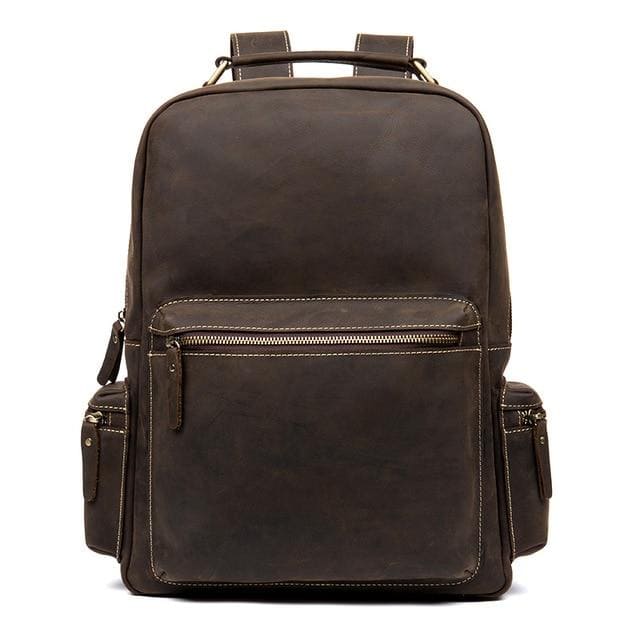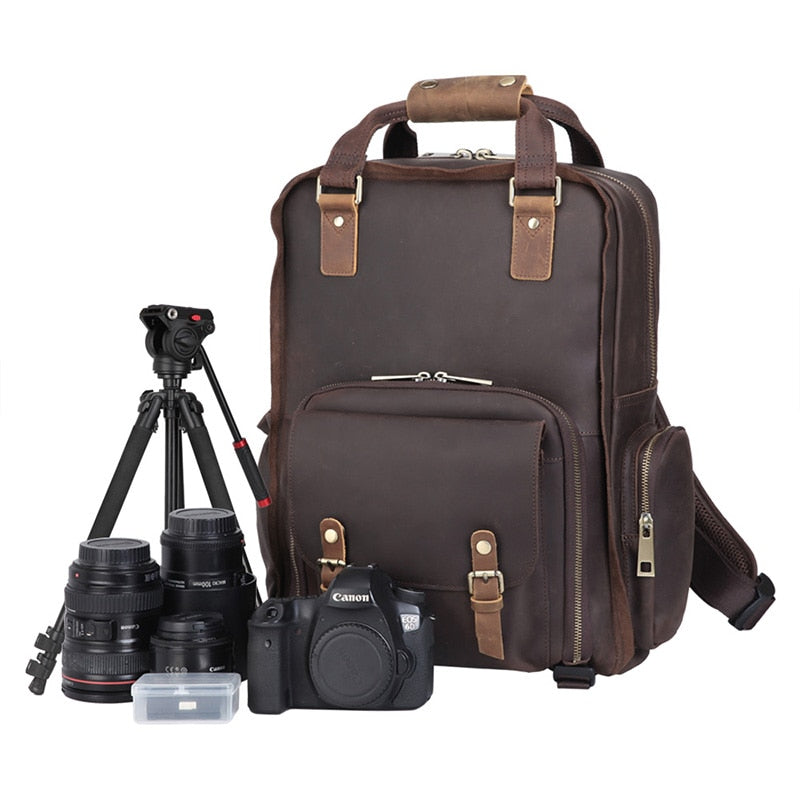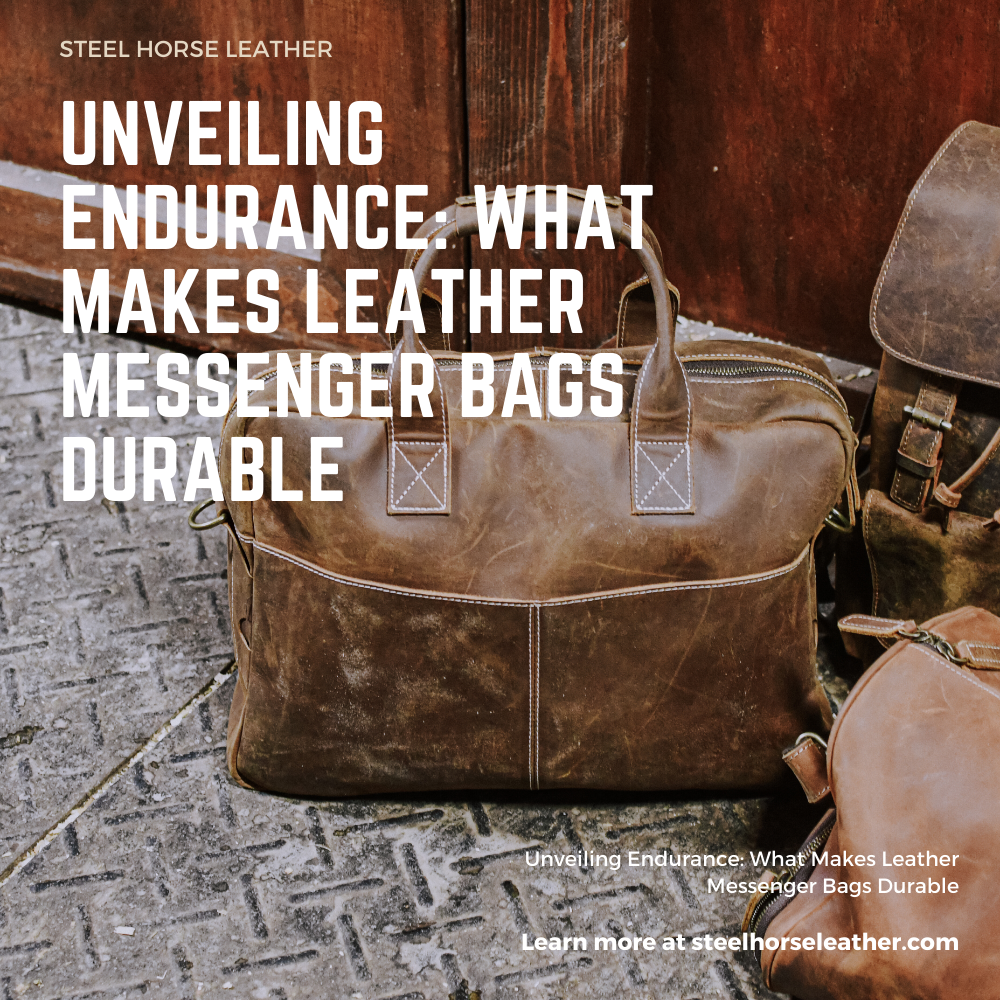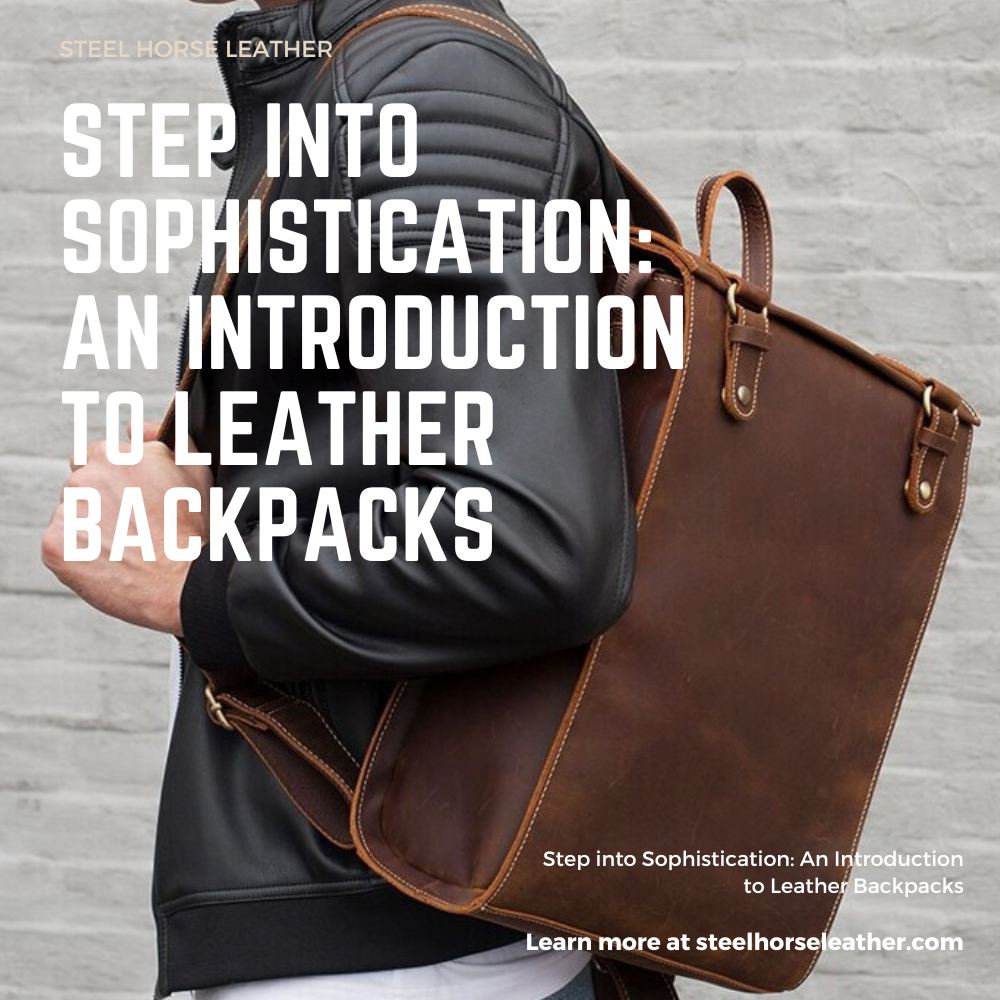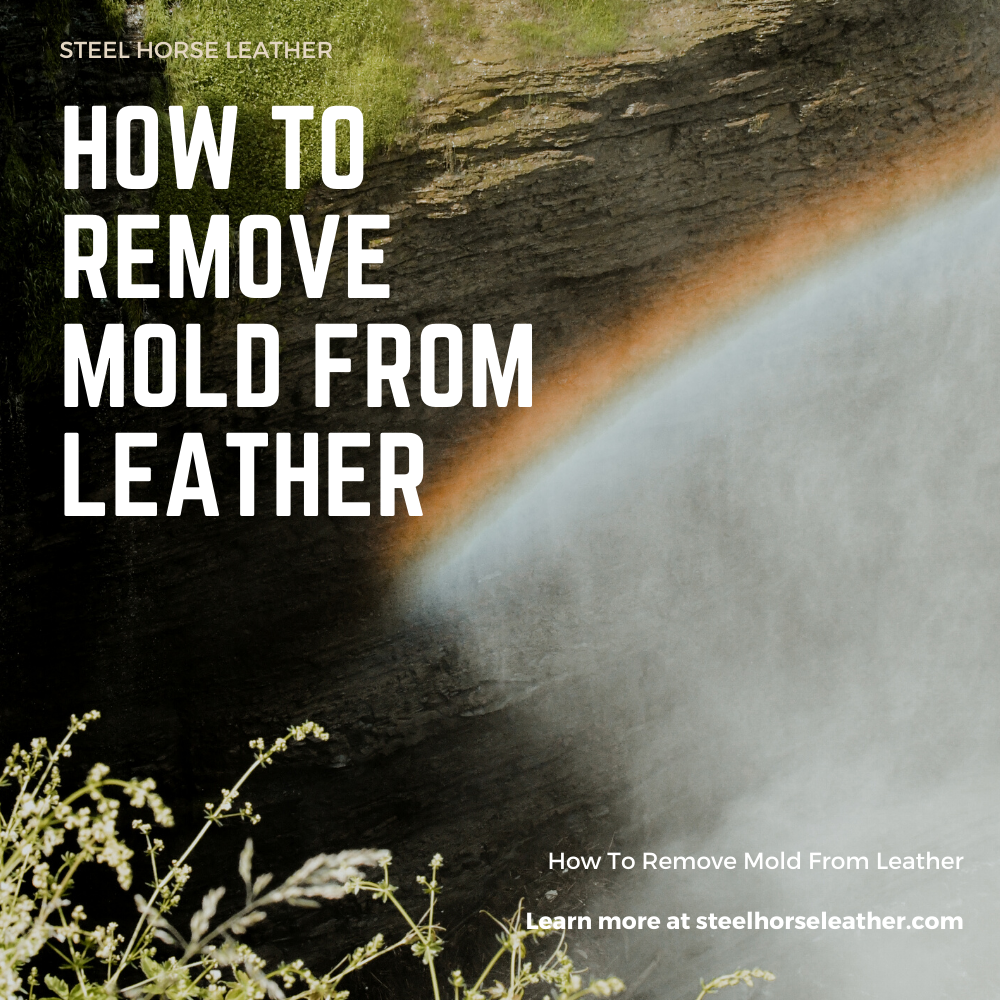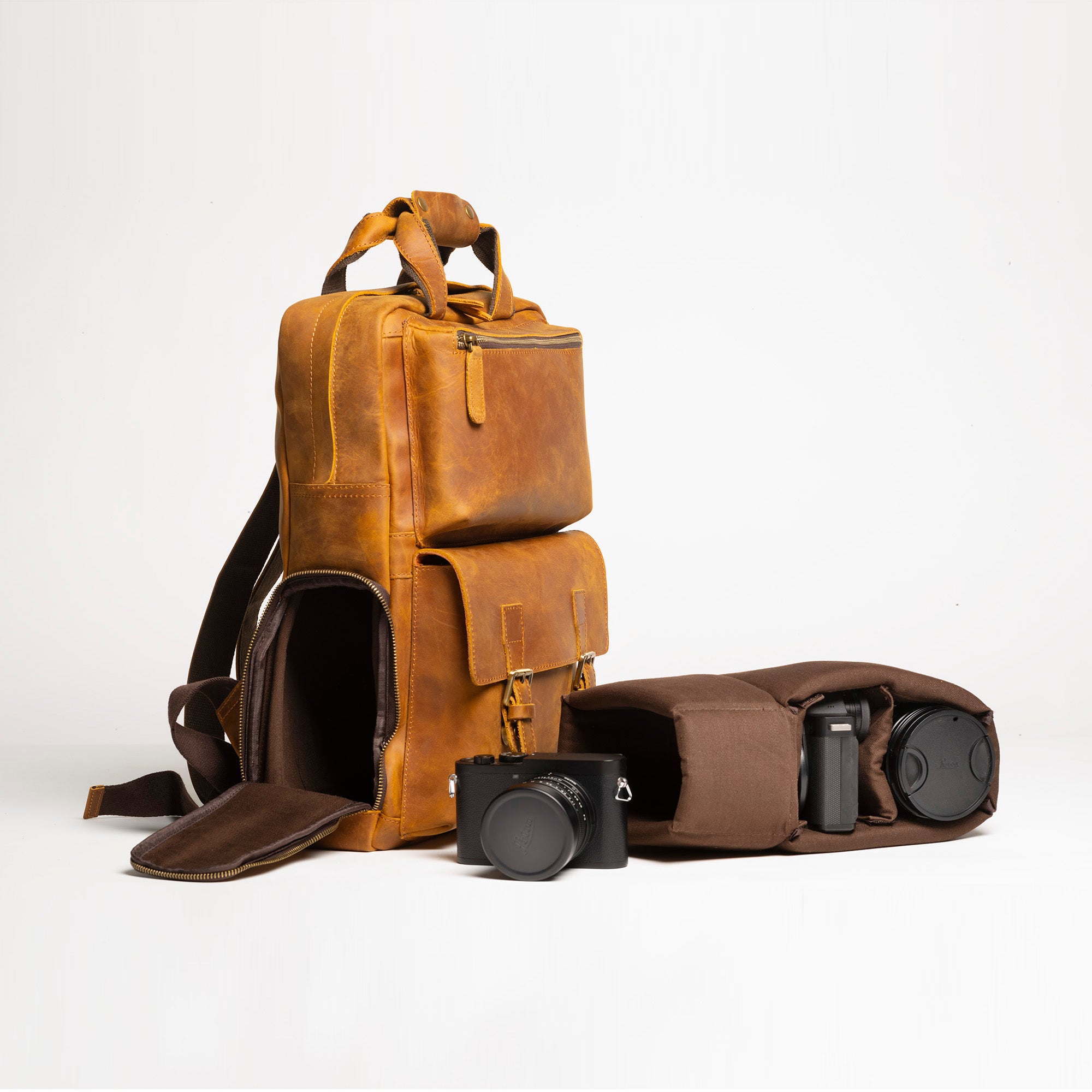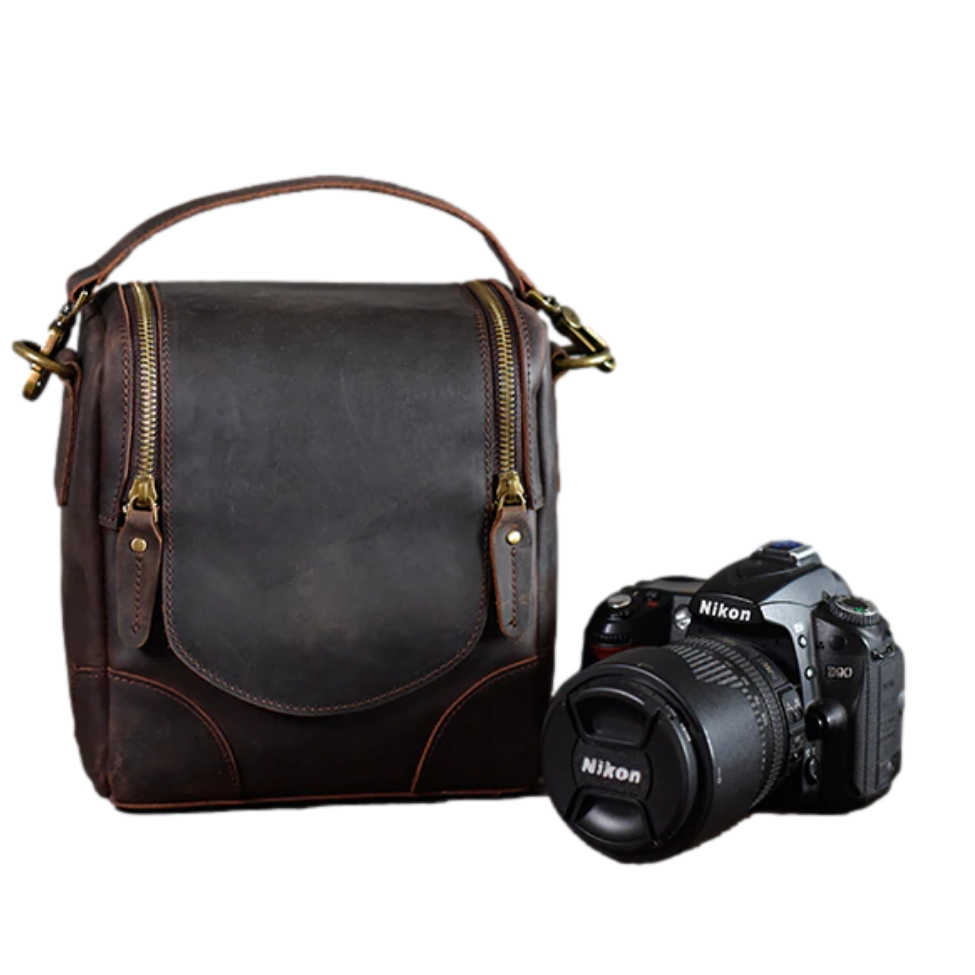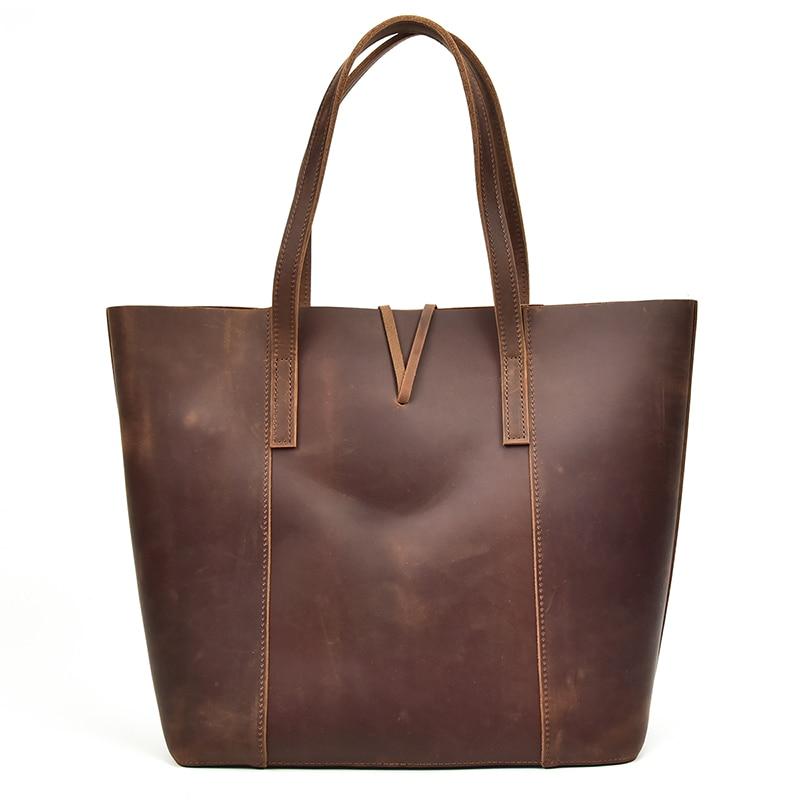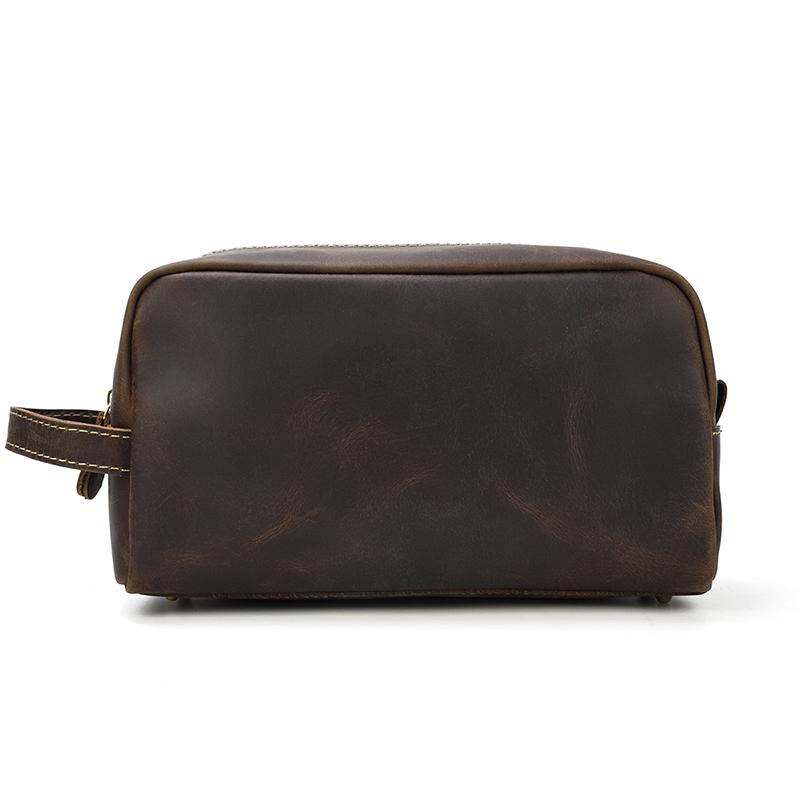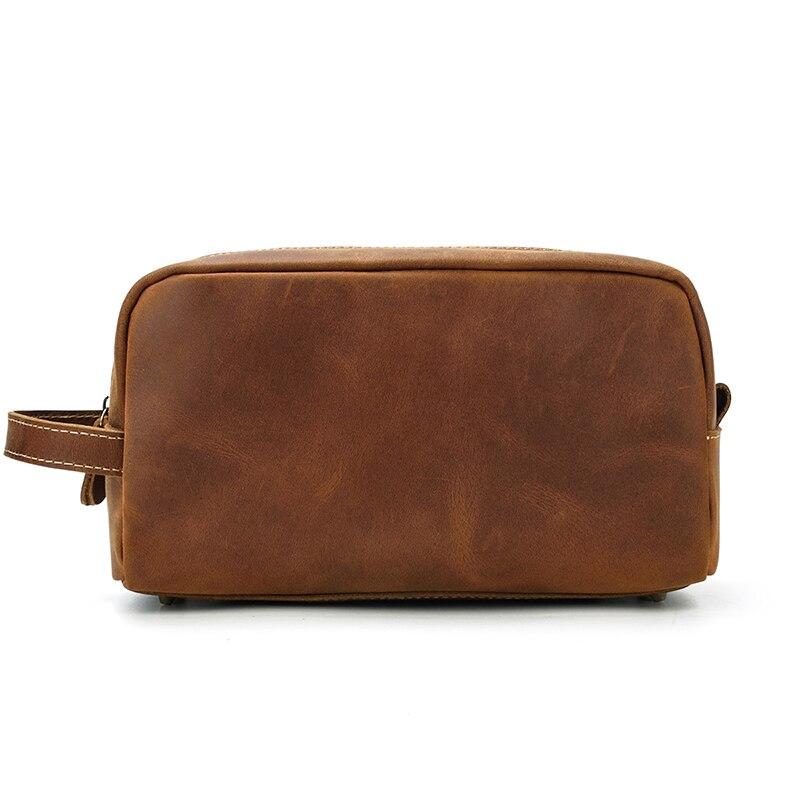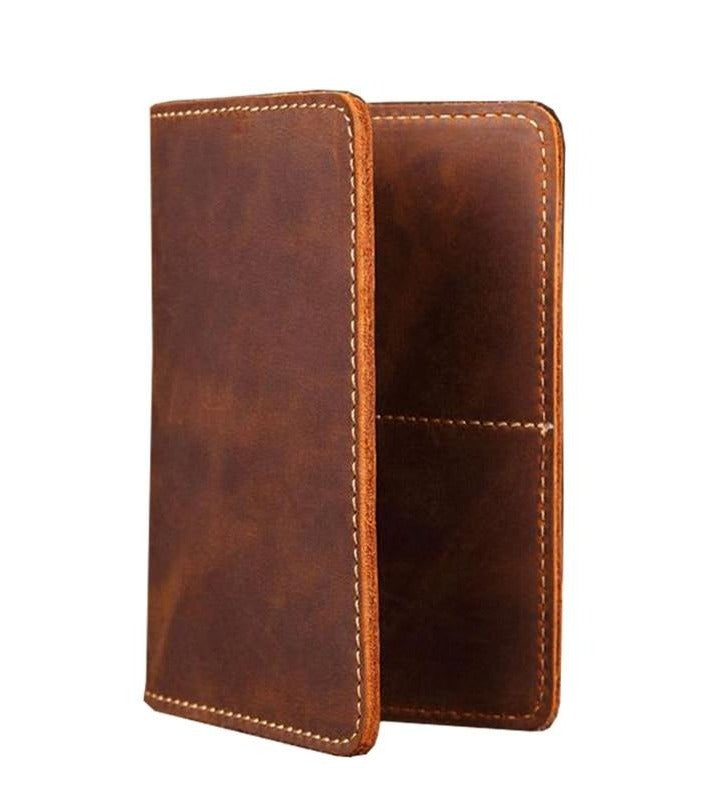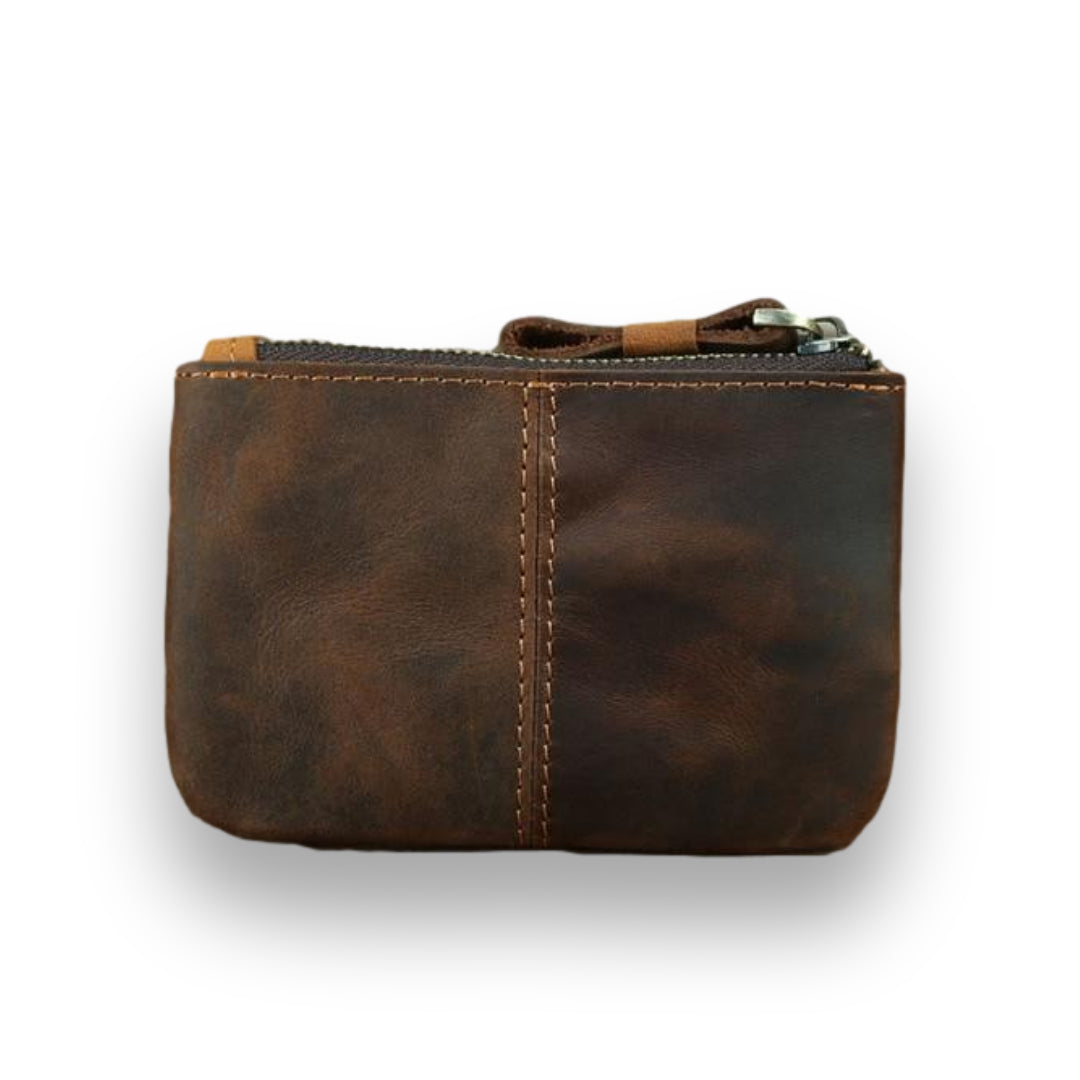
Cheap Leather
It is possible to find cheap leather bags for a low price if you know where to look. There are pros and cons to everything, and leather is no different. The majority of these bags are made from genuine leather, but at the same time, you need to know what type of leather you are buying. If it's fake, you'll end up spending more money in the long run. Surely, it is not worth purchasing fake leather. But in here, we’re going to find out once and for all if cheap leather is worth your every penny.
What is Leather?
Leather is made from the skin of animals and is rot-proof because of a large number of complex treatments. The external envelope of living beings can be seen from a different point of view, as the skin can be seen as a tight interwoven of several collagen fibers. The skin is the fundamental part of the coating that covers every living being and separates it from the external environment, making it a unitary whole, and can be comparable on a large scale to the membranes that separate each cell from outside itself.
Benefits of Leather
Last A Lifetime
Like your favorite pair of jeans, good leather ages well and lasts a long time and unlike synthetic materials, it gets better with age, getting a deeper wear pattern that is individual to the user. Leather fits with the ethos of 'buy less, buy better' as we look for ways to lower or eliminate consumption. Investing in leather products is an investment in the future.
Can be Repaired
Maintaining and repairing leather is easy. The journey towards sustainable use starts with products that can be used for a long time for better results. Leather doesn't need much in the way of lifetime maintenance and it's easy to do at home, so nowadays we're seeing the revival of artisan skills which is used before in repairing leather goods.
Recyclable
It is possible to reuse leather and leather by-products. Leather can be combined with other materials to make other products such as leather board. This can be accomplished at the end of the leather's life. Depending on the type, leather will biodegrade at the end of its lifespan. Leather trims are being incorporated into wall coverings, and more and more companies are recycling the leather component from footwear and leather goods.
All-Around Purpose
Leather can be utilized for many different purposes. The leather makers take the basic raw material and turn it into different types of fabric with different benefits and qualities. It is possible to make leather soft enough for footwear while still being durable enough for furniture. The best jackets and walking boots are made of leather.
Gives a Comforting Feeling
There is a natural feeling of comfort with leather. It is possible to regulate body temperature with the help of leather, which will absorb and hold water away from the skin until it can evaporate. For an individual comfort and fit, leather will mold to the wearer, regardless of whether it's a glove, a shoe, leather jacket, or wallet that's been carried in a back pocket for a long time.
Classy not Trashy
The leather handle adds a touch of class. From handbags to shoes and clothing, leather has been a part of luxury goods for a long time. It has a distinctive touch and wears quality that can't be duplicated and is often combined with hard-edged technology to give a more luxurious and personal feel to an item that is otherwise anonymous. It makes a user experience that is more emotional and less functional.
Cheap Leather VS. Genuine Leather
How to Spot Cheap Leather
When considering a purchase of a leather item, most customers feel like they are taking a risk.
“How will I know if this item is made from quality leather?” The first clue in determining the quality of the leather is reading the company's website and reading the product labeling.
- If you see Genuine Leather or Bonded Leather (also called Fiber or Reconstituted Leather) listed as the material, expect the product to last a few years at most.
- Patent leather is basically some form of leather with a plastic coating added.
- Full-grain leather is the most durable and highest quality choice.
- If the company website or product label doesn't spell out the types of leather being used, you'll want to mark that fact down as your first clue to cheap leather.
- Quality leather is worth talking about. Cheap leather is better hidden from the customer.
Alright, let's move on to the next clue. You think the item is made from leather. There aren't any labels that tell you whether the leather is full-grain leather, top-grain leather, genuine leather, or bonded leather.
Does the leather have blue edges?
When it comes to how leather ages, there are certain things that can affect it.
If you can see the edge of the leather without cutting it, you may be able to see a sky blue color.
- The light blue color indicates that the tannery only partially processed the hide and that part of it is showing.
- It's a taste preference to order a steak rare or medium. An order for a bag rare or medium is the result of a leather "chef" cutting corners.
The blue edges show how quickly the hide was done through the process.
HAVE THE EDGES OF THE LEATHER BEEN PAINTED?
A manufacturer will often try to disguise the edge by painting it blue.
It's worth noting that painted edges are not always an indication of cheap leather. To complete the look of the finished product, an edge coat is applied to high-quality leather.
If there isn't any other information about the type of leather, painted edges are still one of the clues you can use.
WHAT DOES CHEAP LEATHER FEEL LIKE?
It's important to take some time to really feel the leather.
Do you think it is stiff or brittle? Leather that has been poorly processed will feel this way.
Take a look at the surface of the leather. Do you think there is a grain to the leather? Is the grain a little too perfect?
Is there a repeatable pattern you can identify? If that is the case, that means there was a texture stamped into the leather.
Are there any blemishes? Does it seem like there are scars on the leather?
You can see scars and bug bites on the hide of an animal that is likely cheaper leather.
Cheap leather can come from bad stitching or cheap hardware. Take a look at other parts of the product.
Does the bag look cheaply made? Does the stitching look straight?
What do you think about the lining? Does the lining appear cheap?
A company that makes products with sloppy stitching, cheap lining, or cheap hardware would not use first quality leather.
Understanding Unpleasant Odors That Are Present on Cheap Leather Bags & Goods
There are unpleasant odors that can come from leather goods that have either not been manufactured properly or have been treated poorly.
The fixes we suggest are based on what we've experienced. It's important to remember that every leather bag is different and we always recommend an independent examination from an individual that is used to working with leather. It is your responsibility to conduct fixes at your own risk.
It is possible for a leather bag to become susceptible to the moldy smell of a thrift store if it is not stored properly. This smell can occur if you don't dry your bag out after getting it wet.
If your bag gets wet, you should take immediate action by mopping the water with a towel or cloth. A hairdryer will only damage the leather by making it crack, so leave the bag out in the open to dry out naturally. It can be conditioned once it gets fully dry. It is possible to cause mold to grow in the lining of a leather bag if you store it away while it's still wet. If it's been left too long, this will cause a moldy smell, and if you eventually take the bag out, damage may be irreversible.
If the smell isn't too bad, fill some stockings with baking soda and then pack the inside of the bag with help to get rid of the unpleasant smell. It is possible to wash it out with a solution of equal parts of water and vinegar, but be careful not to over-saturate with water.
Leather Bag Reeks like Mildew
Mildew can be found in damp places such as a bathroom or an old room. A strong musty smell can become a problem in leather bags that have been left untouched in a cupboard for a long time, or bags that have not been given a high-quality lining such as the 100% cotton lining.
It is relatively easy to get a musty smelling bag back to be as fresh smelling as it was when you bought it.
What you can do:
- The first thing you should do is give your bag a good initial clean with a damp cloth or baby wipe and then clean inside and out. You should leave your bag on the porch or somewhere safe in the open, but never leave it out in the rain. If the smell doesn't go away after a few days, then you should use a solution made from one part water and one part alcohol or vinegar. To keep your bag dry, put a clean cloth in the solution or cleaner and wipe it both inside and out, be careful not to make the bag too wet. You should keep repeating this process until the leather is free of odors.
- Once you're done, don't forget to condition your bag or briefcase. If the bag has been lying in a wardrobe for a few years, this will be crucial. If you want to avoid this problem in the future, store your bag in a well-aired space and keep it in the dust bag provided.
What you need to know:
- The first indication that the new leather bag you've bought is made from faux leather is the chemical smell. It makes sense since faux leather is a type of plastic and plastic is a man-made material that is processed using chemicals.
- If you're looking to use your new bag immediately, it can take as long as five or six weeks for the smell to disappear. Many of the chemical smells are so strong that they can cause breathing problems in children and people with asthma.
- If you want to be sure that you're getting the best quality leather, you should always buy from a company that has a good reputation and is reliable. If you buy a less expensive leather bag or purse, it will cost you more in the long run.
Leather Purse Stinks like Urine
It's not possible to find a consistent source of this problem, but it is likely that a cheaper bag may have been treated with urine. There are instances where bags sold as cow leather are actually made from the cheaper camel hide, and the manufacturing process involves the hide being soaked in urine.
Urine is full of urea, which can be converted into ammonia. If ammonia is put into water, it will create an alkaline base that can break down organic material. It is incredibly cheap to use this soak as it makes the leather softer and easier to use. It is easier for the manufacturer to remove hair and flesh from the hide when there is urine.
Leather Jacket Stench like Manure
It is common in cheaper leathers or leather that have not been treated correctly to have a smell like manure. Decaying leather is what you're smelling! You need to treat the animal hide well in order to make leather that will last decades. If you don't take care of your leather, it will begin to break down as it rots from the inside, leaving a distinctive smell.
It is possible for a fault in the treatment process to be a simple mistake, however, it is much more likely to be a result of poor quality leather. The companies can sell their products cheaper if they cut down on stages like the treatment. The result is a leather that cannot be fixed and starts to smell soon after purchase. If you want to alleviate the smell, use fabric sprays, but the leather will continue to stink until you throw it out.
How to Identify Real Leather

It can be challenging to purchase leather. There are lots of different types of leather and synthetic leather. New ways to sell synthetic leather are being explored by manufacturers and shop owners by disguising them as genuine. Luckily, we've gathered a few tricks for you on how to buy genuine leather.
1) Inspect the Label
You need to check the label before you try any of the following tricks. Most of the time, high-end leather product manufacturers will give you information about the types of leather used to make their products.
2) Touch and Feel its Texture
Use your fingers to feel the texture of the leather. The texture of genuine leather will vary depending on the animal hide it comes from. It is probably faux leather if the surface grain feels too smooth.
3) Find Deformities
Minor imperfections are present in genuine leather. If your leather has creases, wrinkles, and scratches, then you're holding genuine leather.
4) Warmth
Genuine leather comes from hiding at some point in the past of a living animal. That's why genuine leather has a warm and fuzzy feeling to it. Faux leather, on the other hand, doesn't feel warm and is lifeless.
5) Elasticity
Similar to any animal skin, genuine leather changes color when stretched. It will wrinkle under pressure if you press your finger against the leather. But, it will return to its original form quickly. For a period of time, faux leather will retain the shape of your finger.
6) Aroma
A distinct leathery smell can be found in real leather. The smell lasts even after the tanning process is over. The synthetic leather material smells like something made of plastic.
7) Rough Side Lines
You will always find rough or coarse edges when shopping for leather recliners or handbags. The edges of genuine leather tend to get dull over time. Smooth edges can be seen in faux leather products.
8) Humidity
Natural leather is more absorbent than synthetic equivalents. Try to splash water on your leather goods. Chances are it's a genuine leather item if it soaks up the water in a couple of seconds.
9) Fire Testing (Proceed with Precaution)
It will damage a part of your leather accessory if you don't execute this test correctly. This test can be done on a hard-to-see area such as the underside of your leather recliners. The area must be burned using a matchstick. While genuine leather has a distinct smell of burnt hair, faux leather has a similar smell of burning plastic.
10) Cost Checking
The cost of genuine leather will always be high regardless of how hard you bargain. There are no cheap deals when it comes to purchasing leather.
11) Knowledge about Different Types of Leather
The more knowledge you have about leather, the more it will benefit you. Try to understand as much about the different types as possible. If you're in doubt, refer to this guide.
What's the Best Leather?

Knowing the best place to buy leather is not enough. It is important to distinguish between different types of leather. You will need to understand the reason why some materials last way longer than others, and why a particular leather bag costs thousands, while others are less expensive.
The quality of leather will depend on several important factors, namely:
- Breed and animal type.
- The location of the animal and its environment.
- The portion of the hide the leather was cut from
- The layer of the hide that is used (top-grain, full-grain, split)
- The skill of tanning and the quality of the processes.
Different cows produce different quality hides because of their genetics and environment. Cold climates don't suffer from pests as much as hot climates, which have insects that bite and leave scars on the animal. Breeds with thicker skins might have more protective hair.
The quality of the leather is determined by the portion of the hide. When wet, the loose fibers swell and sponge. Lower portions of the hide are more likely to be marked by insects and scrapes like barbed wire fencing. The hide is more wrinkled around the legs, neck, and head. In the processing of the leather, it is almost impossible to remove the scars and wrinkles.
The different layers within the hide have a big impact on quality. The highest quality leather is full grain and top grain. Broadly, there are four types of leather. Full Grain Leather, Top Grain Leather, Corrected Grain Leather, and Bonded Leather are some of the types of leather.
Leather with more horizontal fibers is easier to pull apart than leather with less horizontal fibers. The strongest fibers are the ones that are vertical running. The higher the number of vertical fibers, the more they are beneficial.
What is the Best Leather type for furniture?
If you like animals, faux leather is an excellent choice for furniture upholstery. Despite being no match for high-end full grain leather furniture, faux leather furniture can last longer. It isn't susceptible to sunlight, is stain resistant, and is less prone to cracks and peeling. It can be an alternative to natural leather in terms of cost and maintenance.
People use the terms PU and PVC interchangeably when buying leather furniture. They are different in many ways. If you want to get the best price on leather furniture, you have to understand the difference.
1) Polyurethane (PU) Leather
Polyurethane leather is made from either polyurethane, bicast, or ground leather. That's why it closely resembles natural leather. It gives a soft and flexible surface to sit on. Compared to PVC leather, it offers better breathability.
The PU leather can adjust to body temperature in a matter of seconds. Even after sitting for a while, it can remain cool. On the downside, it can be affected by sunlight and humidity. It can be brittle after a long period of exposure.
Durability, stain resistance, and high abrasion resistance are some of the qualities it has. It is not designed to be resistant to fire. During the manufacturing process, resistance is often added. Even though it is more economical than natural leather, it is still more expensive than PVC leather furniture.
2) Polyvinylchloride (PVC) Leather
Polyvinylchloride (PVC) may have the softness, color, and texture of natural leather, but no trace of natural leather in it at all. It is resistant to flame and durable. Compared to PU leather, it has better resistance to cleaners.
Because of its affordability and excellent variety of color, texture, and grain this leather is the most popular one out there. Since PU and PVC leathers are not made from animal products, they can be called vegan leather.
Frequently Asked Questions
How do I dry a leather bag?
A hairdryer will only damage the leather by making it crack, so leave the bag out in the open to dry out naturally.
How do I clean my leather?
A solution of one part water and one part vinegar can be rubbed on your leather.
What are the benefits of using a fabric spray?
If you want to alleviate the smell temporarily, you can use fabric sprays, but leather will continue to decomposing and smell until you throw it out.
What if I need to repair my cheap leather bag?
Repairs are conducted at your own risk.
What is leather stuffing?
Fat liquoring, or stuffing, is the process of adding fats, oils, or waxes to the leather to make it soft and flexible.
What are the different tanning processes?
Mineral tanning, vegetable tanning, and glutaraldehyde tanning are some of the most common processes for tanning for leather.
What is Bonded Leather?
Bonded leather is made from leftovers of the hide.
























